#like your love interest should be your antagonist that's the problem
Explore tagged Tumblr posts
Text
What Makes an Ethnic Villain "Ethnic" or "Villainous?" How Do You Offset it?
anonymous asked:
Hello WWC! I have a question about the antagonist of my story. She is (currently) Japanese, and I want to make sure I’m writing her in a way that doesn’t associates [sic] her being Asian with being villainous. The story is set in modern day USA, this character is effectively immortal. She was a samurai who lost loved ones due to failure in combat, and this becomes her character[sic] motivation (portrayed sympathetically to the audience). This story explores many different time periods and how women have shown valor throughout history. The age of the samurai (and the real and legendary female warriors from it) have interested me the most, which is why I want her to be from this period. The outfit she wears while fighting is based on samurai armor, and she wears modern and traditional Japanese fashion depending on the occasion. She acts pretty similar to modern day people, though more cynical and obsessed with her loss. She’s been able to adapt with the times but still highly values and cherishes her past. She is the only Asian main character, but I plan to make a supportive Japanese side character. She’s a history teacher who knows about the villain and gives the protagonists information to help them, but isn’t involved in the main plot otherwise. Are the way I’m writing this villain and the inclusion of a non-antagonist Japanese character enough to prevent a harmful reading of the story, or is there more I should do?
Why Does Your Villain Exist?
This makes me feel old because David Anders plays a villain with this kind of backstory in the series Heroes starring Masi Oka.
I think you want to think about what you mean when you say:
Villainous (In what way? To whom? To what end?)
Harmful (What tropes, narratives and implications are present?)
I’m relatively infamous in the mod circle for not caring too much about dimensions of “harm”. The concept is relative and varies widely between people and cultures. I don’t see much value in framing motivations around “What is less harmful?” I think for me, what matters more is:
“What is more true?”
“Are characteristics viewed as intrinsic to background, or the product of experiences and personal autonomy?”
“Will your portrayal resonate with a large audience?”
“What will resonate with the members of the audience who share the backgrounds your characters have?”
This post offers additional questions you could ask yourself instead of “is this okay/not okay/harmful.”
You could write a story where your antagonist is sly, sadistic, violent and cold-blooded. It may not be an interpretation that will make many Japanese from combat backgrounds feel seen or heard, but it’s not without precedent. These tropes have been weaponized against people of Japanese descent (Like Nikkei Japanese interned during World War II), but Japan also brutalized a good chunk of Asia during World War II. See Herge’s Tintin and The Blue Lotus for an example of a comic that accurately showcases the brutality of Japan’s colonization of Manchuria, but also is racist in terms of how Japanese characters are portrayed (CW: genocide, war, imperialism, racism).
You could also write a story where your character’s grief gives way to despair, and fuels their combat such that they are seen as calculating, frigid and deeply driven by revenge/ violence. This might make sense. It’s also been done to death for Japanese female warriors, though (See “Lady Snowblood” by Kazuo Koike and Kazuo Kamimura here, CW: sexual assault, violence, murder and a host of other dark things you’d expect in a revenge story).
You could further write a story where your antagonist is not necessarily villainous, but the perceived harm comes from fetishizing/ exoticizing elements in how her appearance is presented or how she is sexualized, which is a common problem for Japanese female characters.
My vote always goes to the most interesting story or character. I don’t see any benefit to writing from a defensive position. This is where I'll point out that, culturally, I can't picture a Japanese character viewing immortality as anything other than a curse. Many cultures in Japan are largely defined by transience and the understanding that many things naturally decay, die, and change form.
There are a lot of ways you could conceivably cause harm, but I’d rather hear about what the point of this character is given the dilemma of their position.
What is her purpose for the plot?
How is she designed to make the reader feel?
What literary devices are relevant to her portrayal?
(Arbitrarily, you can always add more than 1 extra Japanese character. I think you might put less pressure on yourself with this character’s portrayal if you have more Japanese characters to practice with in general.)
- Marika.
When Off-Setting: Aim for Average
Seconding the above with regards to this villainess’s story and your motivations for this character, but regardless of her story I think it’s also important to look specifically at how the Japanese teacher character provides contrast.
I agree with the choice to make her a regular person and not a superhero. Otherwise, your one Asian character is aggressively Asian-themed in a stereotypical Cool Japan way (particularly if her villain suit is samurai-themed & she wears wafu clothing every so often). Adding a chill person who happens to be Japanese and doesn’t have some kind of ninja or kitsune motif will be a breath of fresh air (well, more like a sigh of relief) for Japanese readers.
A note on characterization—while our standard advice for “offset” characters is to give your offset character the opposite of the personality trait you’re trying to balance, in this case you might want to avoid opposites. You have a villainess who is a cold, tough “don’t need no man” type. Making the teacher mild-mannered, helpful, and accomodating would balance out the villainess’s traits, but you’ll end up swinging to the other side of the pendulum towards the Submissive Asian stereotype depending on execution. If avoiding stereotypes is a concern, I suggest picking something outside of that spectrum of gentleness to violence and making her really boring or really weird or really nerdy or a jock gym teacher or…something. You’re the author.
Similarly, while the villainess is very traditionally Japanese in her motifs and backstory, don’t make the teacher go aggressively in either direction—give her a nice balance of modern vs. traditional, Japanese vs. Western sensibilities as far as her looks, dress, interests, values, etc. Because at the end of the day, that’s most modern Japanese people.
Sometimes, the most difficult representation of a character of color is making a character who is really average, typical, modern, and boring.
- Rina
#writeblr#Japanese#Japanese women#Villain#antagonist#tokenism#characterization#representation#stereotypes#immortality#superheroes#supervillains#asks
755 notes
·
View notes
Text
Veilguard is such a weird game.
It's not a Dragon age game, it's bately a role playing game. It's an ok action. Even though it is the most stable AAA release it is still just a bunch of barely tied together stuff in a trench coat.
The writing (insultingly dumbed down and absolutely incapable of taking itself seriously untill the last 1/6 of the game) is all over the place, the direction is nonexistent judging by the tonal shift from one quest to another. We can have very heart felt monologue about the fear of death sit right next to a conversation where a lot of things are told using one specific phrase (I really hope in a clumsy attempt at emphasis) repeated till these words lose any meaning to you.
There's also a problem of role-playing in this "rpg" and the Rook. None of your dialogue choices matter in terms of defining your character, no matter the option you choose, the general conversation will carry the upbeat silly tone. "Your backstory and class matter more than your race" works untill it doesn't, like when you are a dwarf but you are denied your own journey and realizations tied to the titans, and maybe it is not your journey to take yet you can't even try to be a part of it, even when Harding is actively reaching out to other dwarves to share this connection. It's also weirdly more interested in writing romance between npcs than for the main character (Lucanis comes to mind, it feels like the game is actively punishing you for pursuing him, you have to lose the whole shadow dragon faction, you won't get to hang out with Dorian and still you have bare minimum and he more interested in Neve anyway), that's extremely funny that this game is player-sexual yet completely player-aromantic. (And I miss the dai option where you can come up and kiss your LI whenever you feel like it).
I won't even touch on the weird and unnecessary sanitation of everything, like we can't allow people or factions to have negative traits whatsoever. And it's not "southern propaganda", it's "we are not engaging with complex topics for the sake of clear dichotomy between good us and evil overlords". Speaking of which
The whole plot.. The general idea of it is ok. You come to stop Solas, you make the situation go sideways, you have to work together to fix your mistakes and maybe learn to sympathize with the antagonist haunted by his own transgressions with the main theme being legacy and your relationship with your culture and the baggage it brings. But the journey is a complete disaster. Part of it works solely because the characters absolutely Refuse to make a plan and the other - because the main character has a blunt head trauma. Maybe it's related. Maybe it's all a mass hallucination. I may try to elaborate on how it's absolutely ridiculous how little the inquisition and the politics have any impact in this game yet somehow 8 people squatting in the Fade with no political affiliations are held responsible for providing for every faction they come across. I won't even try to make sense of it. It's the usual case of "the main character does everything".
The direction is not only absent in the writing. Some lines that are ok in text delivered in such a way you may think they were allowed only to use the very first take.
The music is absolutely forgettable. Also the odd riff during the dramatic reveal absolutely took me out because I thought I heard kazoo (but I bet Varric would love it).
The visuals are.. Ok. It's pretty on the first glance but the more you travel the more you realize that the general design of the locations are kinda lacking. They have this weird gradient that makes everything a little bit more unfocused and a bit washed out. There are also too many cases of the horisont just drowning in the fog. Air perspective is great and it suits locations like Necropolis, but I would argue that these establishing shots should be used for environmental storytelling in other places, with some focal points in the background, like during the final mission where you see the world absolutely drowning in the blight, devouring local statue of liberty. Or the dead Titan. Or the first shot of the Veil jumper forest (I forgot how it's called) where you see the ruins going into he sky. But because of the fog (or sometimes darkness) it feels like the game is more interested in cheating the optimisation than to hint on the bigger picture (like the chantry and the gallows buildings that you can see almost from all locations in DA2 or the andrastian/dread wolf imagery of inquisition)
So, in conclusion. Not the worst game I played, yet disappointing, even if we pretend it's not an installment of a beloved franchise that people were waiting for 10 years.
Ps. Also making such a game with nerfing all the lore only to nuke all the legacy locations is a choice I won't ever understand. It's like it is not for the fans and it's not for the new people but a secret third thing.
112 notes
·
View notes
Text
Red Vs Blue major antagonists ranked on bedside manner:
Tex - 3/10 You might live but it she makes you feel like shit about it. Calls you 3 months later asking you to watch her dog to “return the favor”
O’malley - 0/1000 You’re dead even if he knew what he was doing, he’s more interested in twisting the knife than doing his job.
Wyoming - 7.5/10 He’d be nice the whole time and you’d leave with a lollypop at the end, BUT! Knock, knock, he wasn’t taking you seriously whatsoever.
South - 4/10 Slayific conversationalist approximately 5 minutes before she leaves the room and you don’t see her for 90 minutes and she comes back with coffee, laughs and asks why you’re still in her office. Doesn’t apologize and blames you.
The Meta - 2/10 grrrr….
Washington - 9/10 He is communicating clearly and listening, he understands your concerns. He still might give you a hard time if he thinks its something you can control.
Insurrectionist Leader/CT - 8/10 Honestly not even that bad, he is a little mean and he recommends pretty aggressive treatments but at least he’s listening and staying on task.
Locus - 7/10 There to do his job, he’s going to say something strange about your chart and imply your condition is fatal or says something implicit about who you are as a person. He doesn’t seem concerned about it but you leave feeling like you should be.
Felix - 4.2/10 Appointment for you? Clearly this is appointment for him. He immediately breaks HIPPA telling you about a girl named Brittney with your exact condition, goes on for at least 15 minutes about how he Personally tried to save her from her unrelated tragic death. Says he can get you morphine if you give him 20 dollars.
Sharkface - 10/10 A little prickly but by god does he get you. He’s taking meticulous notes and asking questions you wouldn’t have even thought to bring up. Gives you prescriptions he thinks will help without any argument, gives you a print out of accessible resources. The only choice if you’re not a coward.
Temple - 3/10 Not that bad except he keeps asking if you’re related to someone he knows. He also doesn’t know where anything is. When he does find your chart he says it looks like you would be good at deep sea diving. He hands you a hand written business card for a cult that meets at the local aquarium on Tuesdays. He says he has to go and you are left without actual medical attention.
Zero - 5/10 Same issues as Temple but he actually does give you medical attention. He’s very quick to start accusing your loved ones of being the cause for your medical problems and recommends cutting them off. You can’t tell if he’s joking.
54 notes
·
View notes
Note
I think the concept of the Dawn Knight is good, it’s just that the execution is what makes him such a controversial character in the fandom.
Like, even though colonization is a very sensitive topic for people, you can’t say that every single colonizer in history was 100% rotten down to their core. And acknowledging that isn’t analogous to sympathizing with real world colonizers, it’s just admitting the fact that human beings are nuanced.
So, having a character like the Dawn Knight who is reluctantly complicit in colonization but still nuanced with depth isn’t a bad idea, it’s just that the execution was wrong. In canon right now, the only things that imply that the Dawn Knight was good are:
He chooses to let Lilia and Baul go free with the egg.
He tries to disagree with King Henry but is shut down
He laments to himself during his fight with Maleanor.
These are fine on their own, but the problem is we needed more.
I think we should’ve gotten more chapters where we break away from the pov of Yuu, Silver, and Sebek and focused on the Dawn Knight and Silver Owl’s perspective. Show us the Dawn Knight secretly freeing and saving more fae behind Henry’s back and returning their magestones, even when they rightfully spit in his face. Show us the consequences for when he’s caught, maybe some implications of physical abuse.
Perhaps we could get some scenes where we see the Dawn Knights childhood, maybe change his backstory a little bit so he basically gets groomed by the King to be a weapon. And while his wife helps him develop some autonomy, by the time the war rolls around it’s not enough for him to dig his heels in.
And then, before the fight against Maleanor, maybe he outright says “I’m not going to do this no matter how much you hurt me” to Henry and Henry resorts to blackmailing him. He’s already cartoonishly evil, why not make him even more evil by threatening the Dawn Knight and his wife’s unborn baby?
I think all that would’ve made him a more obviously sympathetic character.
Tldr, the Dawn Knight on paper isn’t bad, it’s just that TWST doesn’t take the time to properly flesh him out.
Unfortunately, the setup we got for the Knight of Dawn is about all that we can reasonably have.
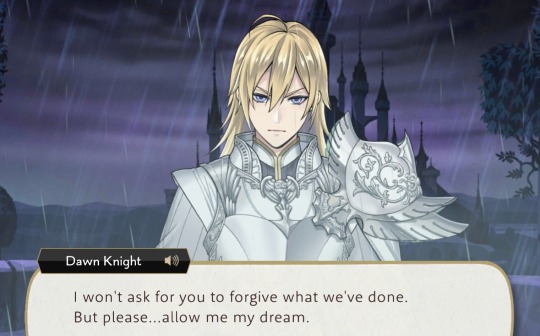
Realistically, everything we saw was in Lilia's head, so how he knew the Dawn Knight lamented how awfully wrong his actions had been is way beyond me. I'd love a more in depth explanation of the character, but adding more chapters with how the story was formatted at that point unfortunately wouldn't have lent any credibility to him. While I think what they do give us in the game is heavily implied to be the true feelings of the Dawn Knight with the intent to make him more sympathetic, it just as easily gives us reasons to doubt these revelations. We would need something like a bonus manga, or have a chapter from his explicit point of view in an anthology about characters we don't get to see much of in order to really flesh him out.
(I think this would be a great thing to have and they need to do the same with Maleanor honestly.)
Bearing in mind that much of the TWST fandom is allergic to nuance when it comes to these kinds of things, it's unlikely to ever happen. But I give Twisted Wonderland props for trying to give a level of depth to Silver's biological father despite him being an antagonistic force in the world's history. You're right though. If they were going for the internal conflict angle, they needed to do more (as is often the case with Twisted Wonderland).
Thank you for your take.
(P.S. No one is saying that you should or need to like the Knight of Dawn, he is just an interesting character to talk about and there's nothing wrong with wanting to explore his motivations more. Just wanted to make that clear.)
#twst#twisted wonderland#twst hot takes#hot take#ask response#twst hot take#knight of dawn#twst dawn knight#the dawn knight#character discussion#character writing
35 notes
·
View notes
Text
Welcome to another round of W2 Tells You What You Should See, where W2 (me) tries to sell you (you) on something you should be watching. Today's choice: 延禧攻略/Story of Yanxi Palace.
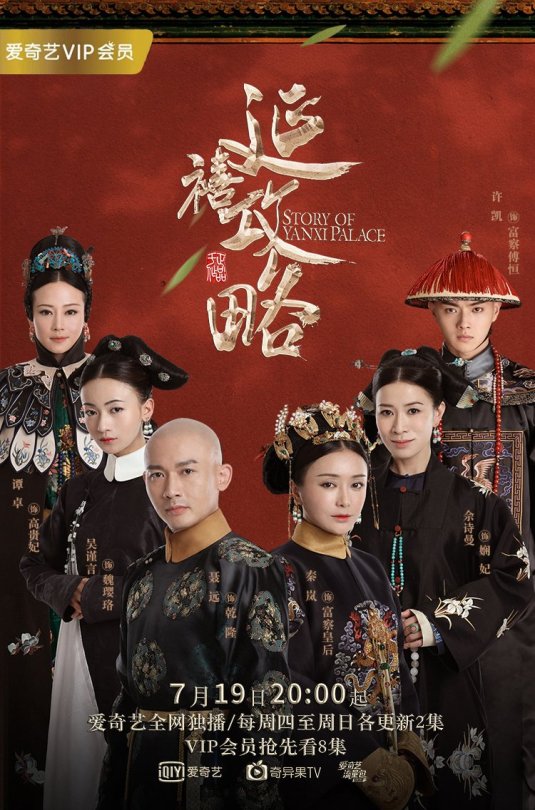
Story of Yanxi Palace is a high-budget 2018 Chinese harem drama about the historical-accuracy-adjacent antics of an extremely baller young woman who gets a job working in the Forbidden City in an attempt to discover the reasons behind her sister's death.
Imagine Nirvana in Fire, but only the scenes that take place inside the Inner Palace. So there's still schemes aplenty, but now these schemes are happening among a cast that's 90% women, all locked inside a walled city with rigid rules, excruciatingly strict hierarchies, and a very limited number of ways of getting out alive.
This show was huge in China. The English-language fandom is almost nonexistent. I'm betting most of you reading this have never even heard of it, and if you have, you have only the vaguest idea of what this 70-episode palace drama is about.
I enjoyed this show a whole hell of a lot. I also had some major issues with the show, to the point where I very nearly did not write this rec. But I'm doing it because I think the good parts of the show are worth seeing, and because I think the problem parts of the show are worth thinking about. Interested? Then follow me through these five reasons (and a few anti-reasons) I think you should watch it.
1. The Real Housewives of the Forbidden City
Tired of c-drama sausage fests? Want to see a bunch of incredibly talented ladies act their faces off? Then this is the show for you.
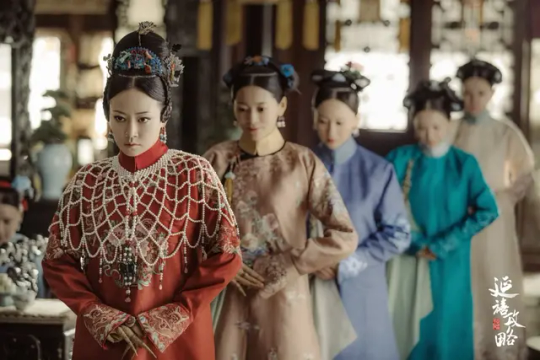
The vast majority of characters in the show are absolute bitches to one another. They are locked in a cutthroat game of power and manners where the stakes are literally life and death, so they spend their whole lives either plotting to take someone else down or counterplotting so the person trying to take them down gets taken down instead. They all know they can't trust one another, but they also sometimes can't not trust one another. They keep their friends close, and their enemies closer.
Unlike most other schemes-based shows, which are all about one big mystery, Story of Yanxi Palace has several smaller arcs. Remember the sister-murder I mentioned at the start? I was prepared for that to take the whole runtime of the show to solve; it actually gets (mostly) concluded around episode twenty-something. Antagonists arise and fall. Situations happen and resolve. Think of it less like a movie's single narrative, and more like a video game's multiple levels. Hooray, we finished Garden World! Now we get to go back to Palace World, but with way more EXP and powerups than we had before!
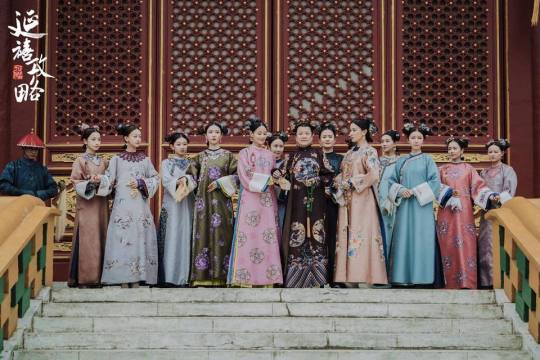
I know that looks like a bunch of lovely, high-class ladies in that shot, but it's not. It's a pit of vipers. Any woman in that lineup would straight-up shank pretty much any other woman in that lineup without hesitation or remorse. Every woman there knows exactly where she fits in the hierarchy and has a detailed plan for how to take out every woman above her to get to the top -- except for the one in black, who already did take out every woman above her to get to the top, and that's why everyone has to ostentatiously defer to her now.
If you are a fan of TV shows where folk scheme their way to success, this is really a can't-miss property for you.
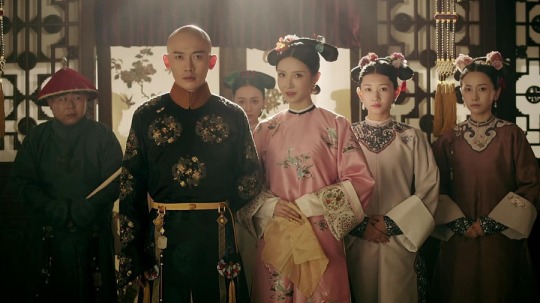
This is also a show about how smart women have to become to survive being at the mercy of stupid men. Not only are the women being vicious to one another, they're doing so while simultaneousy having to pretend that they are pretty, delicate, vapid ornaments whose only thoughts are how they want the best for their precious emperor and his beloved mommy. It's all about the exercise of soft power, how to hide your knives behind silk sleeves and a sweet smile.
So okay, it's not quite as trashy as reality TV, but it's still bitchy as hell and incredibly fun to watch.
2. You love to hate her (and her, and him, and her)
Now if you've read pretty much any one of my previous recs, you know I like a good baddie, and this is a show with some good baddies. As I said in the last point, this is a show about bad people doing bad things entertainingly.
However, I am not going to tell you who most of the show's love-to-hate characters are, because the vast majority of them do not start out hateable. If the show introduces a female character and you like her, or a eunuch character and you like him, there is like an 85% chance they're going to do a heel turn. (And then sometimes do a face turn after? Look, schemes are complicated.)
But I will tell you about one bitch who's rotten from her first moment to her last: Noble Consort Gao.
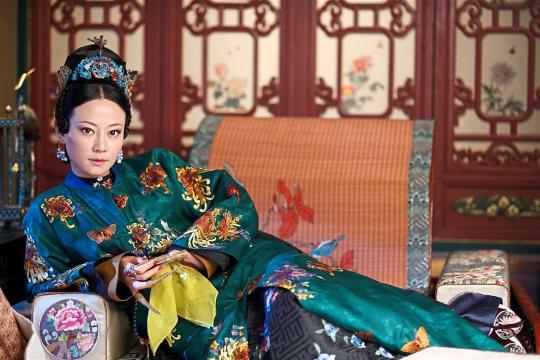
Noble Consort Gao is the scenery-chewing, shit-stirring, absolute meanest mean girl in the palace, and it is so fucking entertaining. She's your major antagonist for the first half of the show. She's strategically mean, but she's also recreationally mean. She does the anime villainess laugh for real. Her actor, Tan Zhuo, has set her bitch dial to 11 and isn't even bothering to chew the scenery -- she's shredding it with those incredible metal claw-nails she wears.
Noble Consort Gao is a good starting antagonist because she's so blatantly evil -- and yet somehow still unstoppable. She's a good example of how you can get away with being pretty much openly sinister if you also manage to mind your manners. The reason she gets away with being so damn awful to everyone else is that she's still playing by all the rules. She's managed to weaponize every convention about propriety to lord her power over everyone else. She's like a fucking HOA.
And you'll notice I'm speaking about her with such fondness because she's delightfully awful. In fact, pretty much everyone in this show is delightfully awful. There are exceptions, but on the whole, you want to see them go down, yet you're also going to be a little sad when they go. Even Noble Consort, by the end, you get where she's coming from, and you feel a little bad for her on the way out.
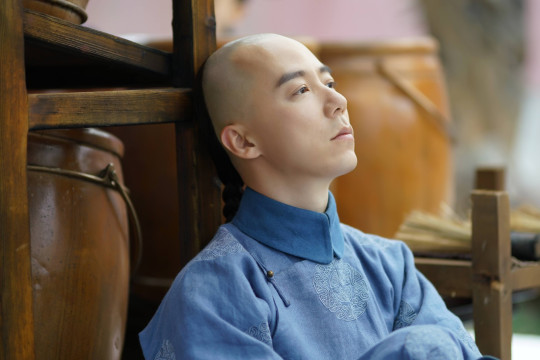
Do you like vengeance? Because we've got some vengeance for you here. Many, many people in this show have been wronged, often by the people they trusted most. And of course they all respond to this in a healthy manner, seeking justice for themselves and for their loved ones through proper channels and reasonable means.
Ha ha, just kidding, everybody here is completely unhinged! The primary difference between a good guy and a bad guy in this show is how many innocent people they wind up taking down with the guilty party. It's messy as hell and we are making popcorn about it.
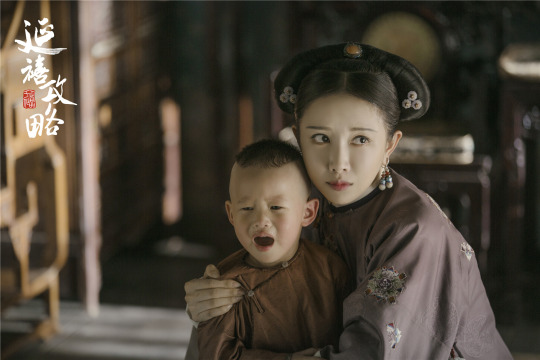
This is a show full of villains. In fact, this cast is pretty much entirely bad guys, semi-bad guys, potential bad guys, and good people who had to do bad things to survive. There are maybe two non-child characters who are Just Plain Good that don't get nuked almost immediately. Everyone else is some shade of grey. Even our hero (and we'll get to her in a minute) is pretty yikes-inducing cruel when she needs to be.
Going to say this as clearly as I can: This is not a show for people who cannot tolerate moral ambiguity. This is a show for people who love to watch clever bastards work. And pretty much nobody's more of a bastard than Noble Consort Gao.
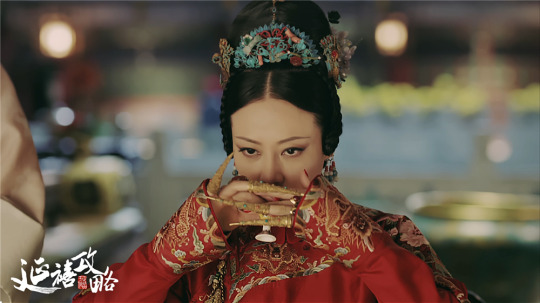
Ladies and gentlemen, the cunt is served.
3. No, seriously, this is actually what it all looked like
If you are at all interested in this actual time period, you owe it to yourself to see this dedicated work of historical recreation.

The amount of research and detail that went into this production is honestly mind-blowing. Because this show is set in the 18th century, we actually have some pretty great documentation about the places, objects, and people involved in this story -- including some (slightly later, obviously) photographs! The production went all out in its attempts to replicate the setting, including using period-appropriate techniques to create various accessories and objects.
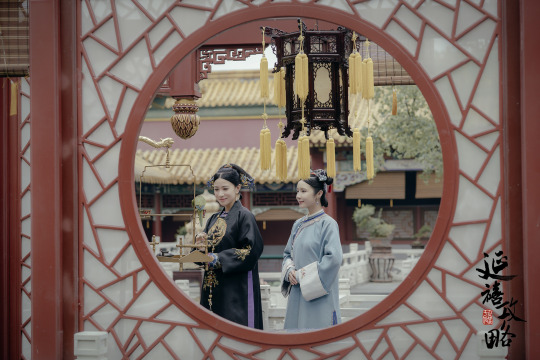
The outfits are amazing -- and excruciatingly accurate in several aspects. I've seen more than a couple people say that their first reaction to the costumes was, ho hum, kind of boring. Well, yeah, compared to some of the absolutely bugfuck-complicated wearable works of art from earlier periods, these are a little understated. But then you start paying attention to the million little details: the embroidery, the hair ornaments, the layers, the fabrics. A whole team of people clearly put a huge amount of work into these outfits.
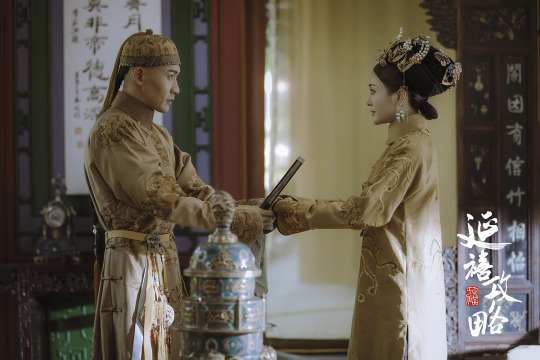
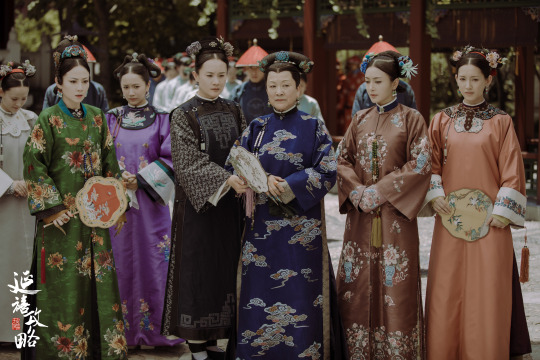
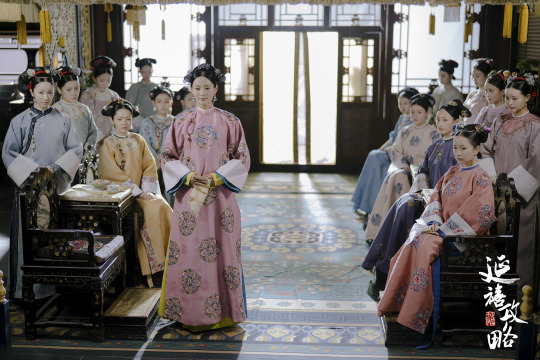
Nearly every royal character in the show is a real person. You could spoil yourself for several major plot beats just by going to Wikipedia. In fact, I accidentally did this, because I was reading the show's DramaWiki page and thought, oh, that's interesting; I understand why the actor names are links (because it takes you to the actors' pages), but why are so many of the character names also links? Turns out: Wikipedia! So, uh, careful where you click.
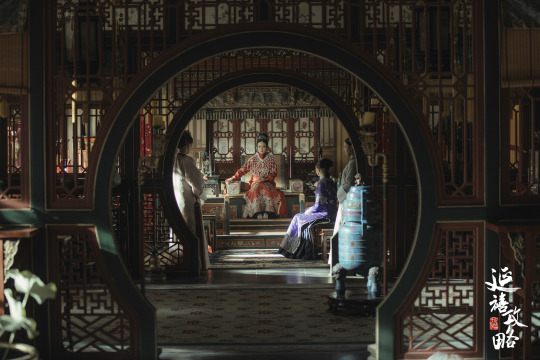
One of the great things about the show is how utterly claustrophobic it is. Most of it takes place within the heavily guarded walls of the Forbidden Palace; on the very few occasion it goes somewhere else, you're just traveling to other walled manors and villas. There's one brief scene in a forest, and the psychological difference is enormous. You see a few trees and you're immediately like, oh, so that's why these women are going crazy in their gilded cages.
The drama even shows how some of the least glamorous parts of the Forbidden Palace work: the chamber pots, the coal for furnaces, the mopping, the weeding, the laundry, the fire brigades. It's an enormous production, keeping what is basically a 178-acre city-state running to imperial standards. It's nice to see a drama that acknowledges that while rich people may want to see only clean walkways and fresh sheets, those things don't happen by magic.
If anything, knowing about all this detailed research makes the unintentionally funniest scene in the entire show -- the one with the eunuchs playing Western instruments -- ten times funnier. You had artisans spending months doing exact recreations of historical hairpins, and you couldn't spend thirty seconds asking the internet "when were saxophones invented?" or "does an accordion make noises like a string quartet?" Perfect. No notes.
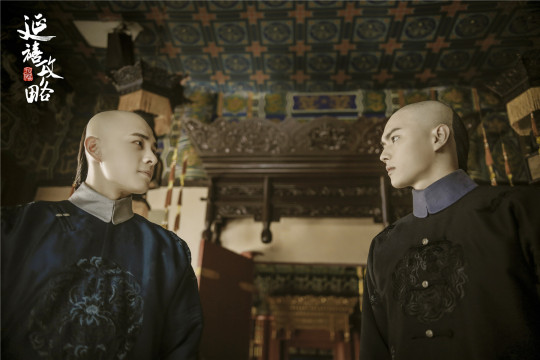
Trust me when I say you'll get used to the queue haircuts on the dudes. It helps that most of the time, they're facing the camera so they just look like they've got their heads fully shaved, and most of them have heads that look very good shaved! ...Most.
4. The kind of girl who'd make Mei Changsu say damn
The show has a strong ensemble cast, but the woman at the core of all the action is the tough-as-nails protagonist, Wei Yingluo.
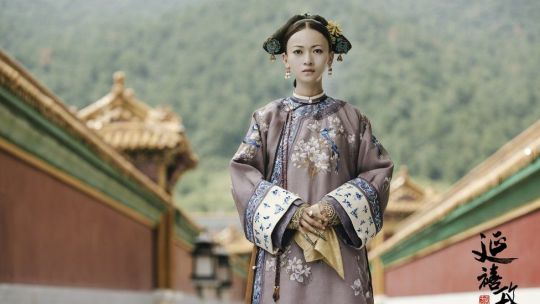
The details we have on the actual Lady Wei are sparse. She doesn't really exist as a person in the historical record, to the point where we don't even know her given name (if she even had one) or when she showed up to the palace. We mostly know when she got given her titles, how many kids she gave birth to, some of what she did later in life, and when she died. The show takes these historical gaps and just runs with them, weaving into the silences a narrative that, while implausible, could have happened!
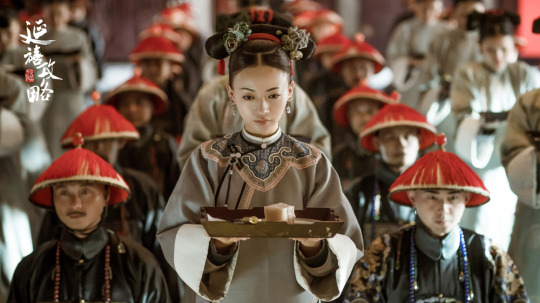
The show starts when Wei Yingluo enters the Forbidden City, not as a royal lady concubine, but as a regular little maid. She's got an agenda, though -- as mentioned earlier, her sister has died tragically, and she wants to figure out why. The stakes get higher as it becomes clear just how much people don't want this question answered, for their sakes as much as for hers.
She very quickly realizes that she can't just live a quiet life and snoop around casually. Too many people are out to get her, and if she's going to survive, she's got to fuck with them before they fuck with her. And they are wholly unprepared for the self-destructive lengths to which she will go to to fuck with them.
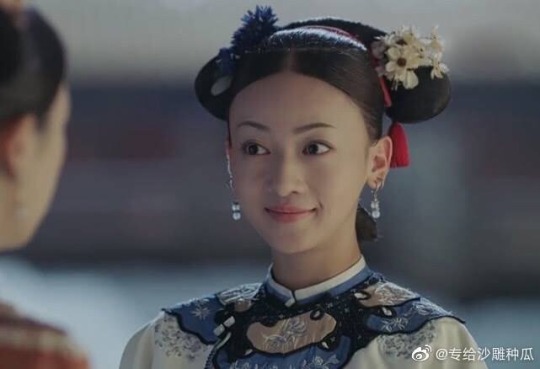
Wu Jinyan deserves all the accolades for turning in a great performance. She has to be completely all over the board emotionally and energy-wise for seventy whole episodes, and she brings it. She's very funny and physical when the show calls for her to be! She's willing to flail around and stuff her face and ugly-cry. Then she turns on the don't-mess-with-me stare and the temperature in the room drops ten degrees. Did she get some award for this? [checks her DramaWiki page] Okay, she got several awards for this, good. Even in a huge cast this talented, she's an absolute standout. I can't wait to see her in the Double, which is definitely on my to-watch list.
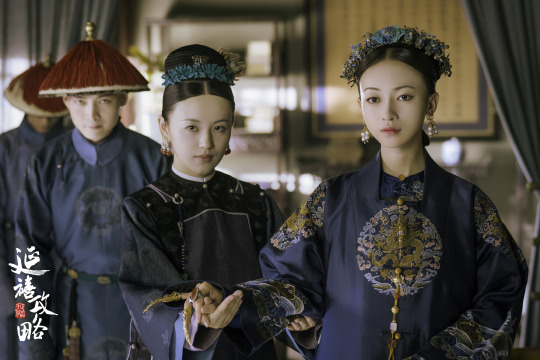
I'm not going to call Wei Yingluo a Mary Sue, because that's not accurate, but this girl does have some serious plot armor on. You never get the sense that she hasn't earned it, though. She's smart, capable, and more than a little completely fucking crazy. The show makes you believe that the reason she survives most of the shit she pulls off is that everyone is just so baffled that anyone would try it at all that they don't even know how to respond.
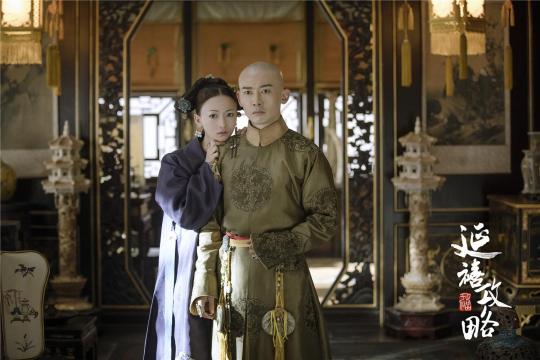
I thought about starting out this rec post with Wei Yingluo -- putting her above the cut, in fact, because she really is that compelling. She's back here, though, because it's with Wei Yingluo that we start to slide into my points of critique. Too often, female protagonists are here to solve the problem with their cuteness and quirkiness and extra-special perfectness that shows up all the other girls and captures the heart of whatever boy she needs to save the day. And no matter how this show starts off wanting to make her something different, it ultimately can't conceive of a female lead who isn't at her core just like that.
The writers can never decide how much Wei Yingluo's Manic Pixie Dream Girl act is an act, and how much she means it. The show introduces her as a stone-cold psychopath who is capable of feigning being a carefree brainless uwu smol bean. Later it decides, actually, she's really at her core a spunky, soft-hearted creature who likes to goof off and is just capable of switching on Scheming Bitch Mode when she needs it! And it's like, are you kidding? You just spent like forty episodes telling me that it's all a big trick when she does this, and now you're saying it's not anymore?
It's like they made a character capable of decieving men, and then got decieved by her, which you have to respect. Any fictional character can fool another fictional character; only true legends fool their creators.
sidebar: fuck that dude
The show can never fully commit to this bit, because he's supposed to be our big heroic love interest, but the emperor fucking sucks.
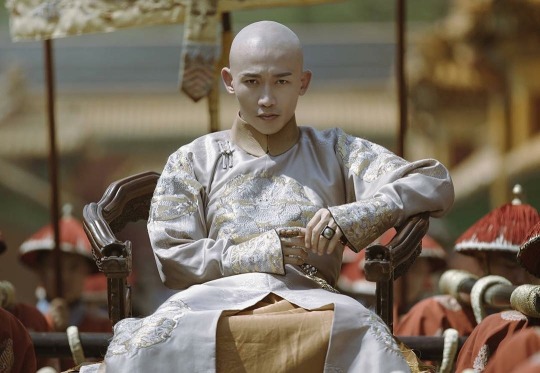
Hands-down the show's biggest moral is that All Emperors Are Bastards -- yes, even the ones in relationships we're supposed to find cute; yes, even the ones whose lifestyles we're supposed to envy; yes, even the ones played superbly by the devastatingly handsome Nie Yuan. While watching we repeatedly invoked this tweet:
Being a billionaire must be insane. You can buy new teeth, new skin. All your chairs cost 20,000 dollars and weigh 2,000 pounds. Your life is just a series of your own preferences. In terms of cognitive impairment it's probably like being kicked in the head by a horse every day
He is the dumbest, most easily played motherfucker in China. Getting horny makes him stupid, and he's horny all the time. He has absolute power over the lives of everyone in the empire, and you can distract him with the mere suggestion of a vagina. He has taken a full You Girls Fight It Out Amongst Yourselves stance toward his scheming harem. This will not go well for anyone.
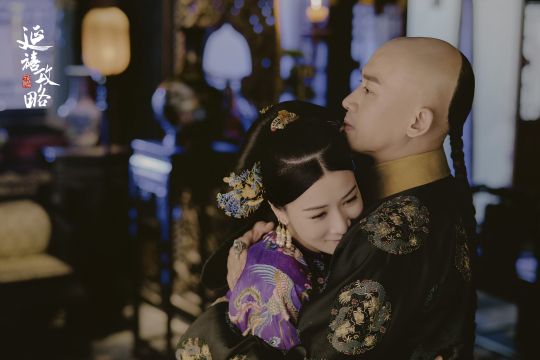
And speaking of those wives, no matter how many times they loudly profess their undying devotion to him, I have a rough time imagining these women feel anything for the Emperor beyond exhausted contempt. Well, okay, maybe the Empress who married him before he took the throne, since she had a chance to get to know him before he was in full Emperor Mode. But none of the other women should ever stop dunking on this guy like the gullible shitbag he is. If you (like me!) are already skeptical about any given heterosexual romance in fiction, be prepared to roll your eyes through the Big True Love Story this one tries to sell you.
5. Right on the cusp of a fascinating feminist conclusion!
I may be on this one for a while; skip ahead if you like.
Okay, so: What little English-language buzz I've seen about this show has used the word "feminist" about it -- mostly in conjunction with how the show's popularity made the CCP sour on its failure to portray appropriate communist values (???). So I went into it expecting feminism! And I got a show with a whole bunch of female characters in it! And hoo boy, are those two things not necessarily the same!
This show is a great example of how merely passing the Bechdel-Wallace Test doesn't make something feminist. Sure, it's mostly about a single woman who, through her plucky nature, rises in the ranks of power. But that is feminist only by the shallowest, most girlboss, Lean-In-ass definition of the word.
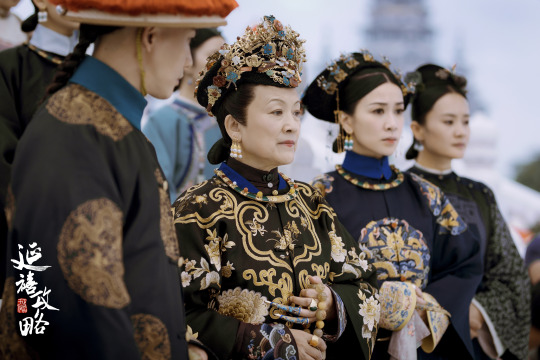
At the beginning, you can kinda tell this was written, produced, and directed by men. By the time you get to the end, you can absolutely tell that the production team was dudes from top to bottom. This, to me, is the big tell: that the show cannot conceive that anything these women are doing could be interesting unless it's trying to stab another woman in the back. There is a time jump very near the end, where the few female characters still standing agree to stop being shitty to one another -- and then fast-forward a decade, because why would we care about seeing what their lives are like when they're not being shitty to one another?
The show is incredibly constrained by Actual History. At the end of the day, it's a Cinderella story, and as such, we have to cheer for the social and legal mechanisms that make it possible -- even when they're grotesquely misogynistic. The show lets its female characters pay lip service to how awful it is that women are little more than breeding stock, but it doesn't let them do anything about it. Mothers can be obliquely sad that their daughters are being fed to the same patriarchy machine that fucked them up, but talking is the most they can accomplish ... because those daughters were real people who were actually fed into the patriarchy machine. We know this. We have documentation. China is very good at keeping receipts.
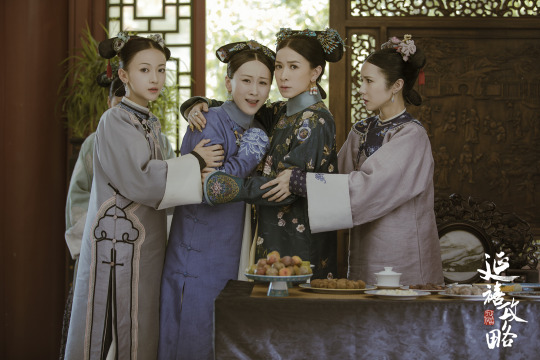
Wei Yingluo starts out as a servant, and throughout the first half of the show, she moves up and down in the servant ranks -- and all the while it makes the point that being a servant fucking sucks. Maybe it's better when you get to work directly under someone you really like, but the actual job sucks shit and puts you at the mercy of everyone above you in the palace hierarchy. Your life is not your own. You're barely a person. You can easily get executed for merely working in the same household as someone who broke the rules.
The feminist answer to this dilemma is to notice that the system is bad and either a) refuse to participate in it, or b) use your power to mitigate its badness. The show, however, clearly thinks that the real problem with this whole setup is that the people we like aren't at the top of it. Somebody has to take the abuse; you just don't want that somebody to be you. Once Wei Yingluo gets to a place of real power in the palace hierarchy, she starts behaving very much like the people who used to be shitty to her and takes no steps to prevent the early-show damage she suffered from happening to other people.
Now: You can make the argument that if she'd done all those radical things, she would've been dead meat -- and I think you'd be correct! But the show never indicates that it gives a second thought to how abusive and unfair this all is. Survival in this system means exploiting the people below you. There's not a neutral option. And this show expects you to cheer for exploiting the "right" people.
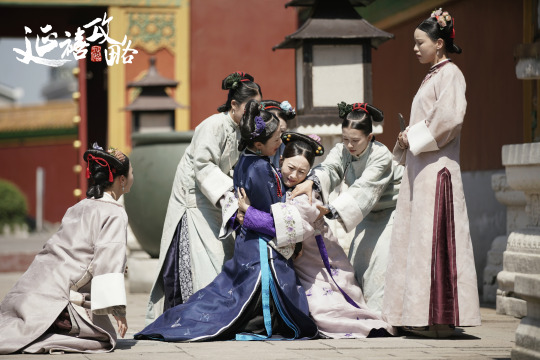
The show never quite seems to internalize what the stakes are -- at least, not for more than a moment or two at a time. I made the Real Housewives joke because the show more or less treats the consort-on-consort schemes as fun catfights by mean girls wanting to be the prom queen. It almost gets to the point of realizing that a woman's place in the harem is literal life-and-death shit for her, and that if she can't produce a son and work him into a powerful position, she's fucked. It always bunts when it gets there, though, choosing to play up vanity and petty grievances instead of the absolute desperation these women must be feeling.

It gets so close with Consort Shun to a real discussion about how awful it is that the men in their lives see them as pretty objects to be bartered for favor and power with other men. But it can't fully go there, because that would undermine the structures propping up this Cinderella story, and then we couldn't feel good about the Cinderella story. And we want to feel good about the Cinderella story. We will burn every other female character in the show if we get to feel good about the Cinderella story.
I've made a lot of jokes about lesbians in this show, but the truth is, it is chronically deficient in lesbianism. Lesbian sex would have improved the lives of at least half the characters here, if not more. Unlike a lot of other historical c-drama shows, Yanxi Palace acknowledges the reality and possibility both male and female same-sex sexual desire -- but it does so in order to say that both are bad. (I legitimately cannot tell if the production is doing this to show how regrettably anti-gay the past was or to play on the audience's expected homophobic disgust. I suspect the latter, but I genuinely don't know.) While it does the fascinating thing of showing desire and coupled relationships between women and eunuchs, it has no idea how queer those setups are, nor does it acknowledge the possibility for same-sex pairings to fill that same positive dynamic.
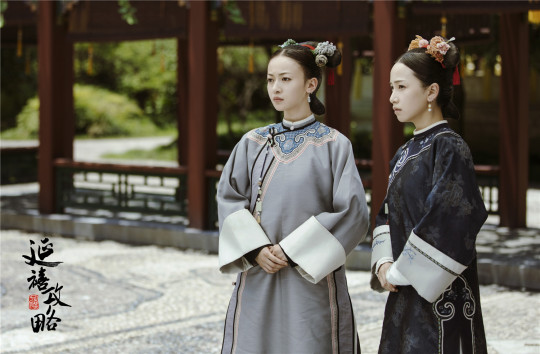
So why on earth would I list this whole mess of problematic attitudes as a reason for, and not against, watching the show?
Because it is fascinating to think about. Look, I've burned a lot of time and brainpower here writing several paragraphs that no one is ever going to read about how interesting the show's moves are. It has the weird problem where it understands what happens when you lock a bunch of women together in a high-pressure situation keyed to a brutal hierarchy -- but it doesn't ever appear to quite get why. At least, not beyond the sense that people will claw their way to the top of any hierarchy they have access to, just because it's there. (Watch how it treats the few exceptions to this, the rare nonambitious characters. See how long they stay nonambitious.)
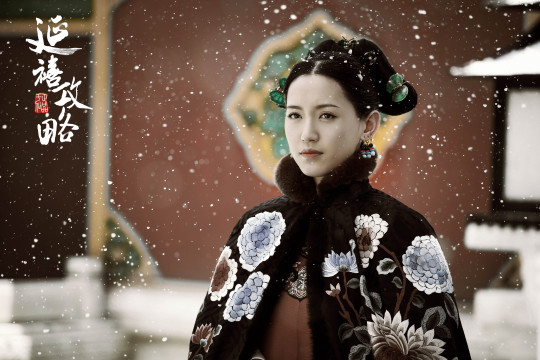
As I said when I labeled this point, the show is just on the edge of a smart conclusion, and that smart conclusion has to do with how awful it is that women are both the people who suffer most under heteropatriarchy and the people who work the hardest to uphold it.
Yes, the world into which these women have been thrust is awful. But they make it ten times more awful because they're all semi-voluntarily engaged in a vicious, Highlander-esque zero-sum competition. They could cut one another some slack, but they're more invested in continuing the cycle of abuse to maintain an intense, repressive order. The ones that try to be kind about it get repeatedly fucked by the ones who have no interest in kindness. They all have to engage in performative rituals that mimic sincerity without actually producing a single genuine emotion toward one another. It's horrifying and paranoia-inducing in the extreme. And they're doing most of it to themselves.
If it were really feminist, the moral of the Story of Yanxi Palace would be it does't have to be like this. This dynamic is not inevitable; this is a choice perpetuated by generations of people who benefit from it just enough not to question its correctness.
Sadly, there's still enough promise in patriarchy that being a Good Girl will save you from the shit we put the Bad Girls through -- so don't you want to be a Good Girl? All we need you to do is throw all those icky Bad Girls under the bus. It's their fault for being Bad Girls anyway. But you? You don't have to be afraid. We're not going to hurt you. You deserve all the good things we're giving you. You're not like all the other girls. You're different. You're special.
Just don't forget to watch your back.
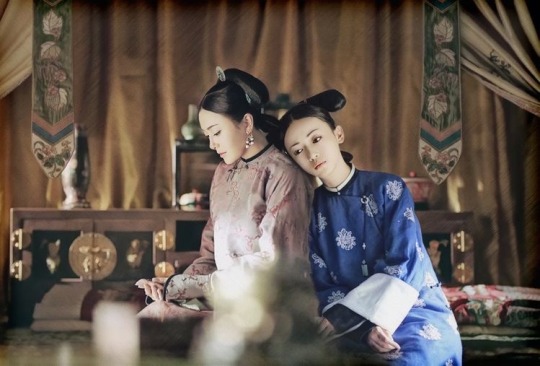
If anything, I think the CCP is terribly wrong: This show is an excellent demonstration of communist values, in that if these women had just joined together in solidarity, all their lives would have been so much better! The Emperor should have been posting helplessly on Reddit like "My (55M) consorts (40F, 36F, 31F, 28F, 22F, 19F) have unionized" so the entire internet could come for his ass.
Care to watch?
This is another of those shows you can find in a whole bunch of places! Here's the ones I know about:
YouTube
TVBAnywhere
Viki
Tubi
iQiyi
I know seventy episodes is a commitment. I know eighteenth-century palace drama is a lot. I know that last selling point of mine seemed to go on for-fucking-ever and you probably didn't read any of it. But this show is a beautiful work that I think more people should see, warts and all. Besides, if all we ever consume is ideologically "pure" media, how do we learn to think critically about anything?
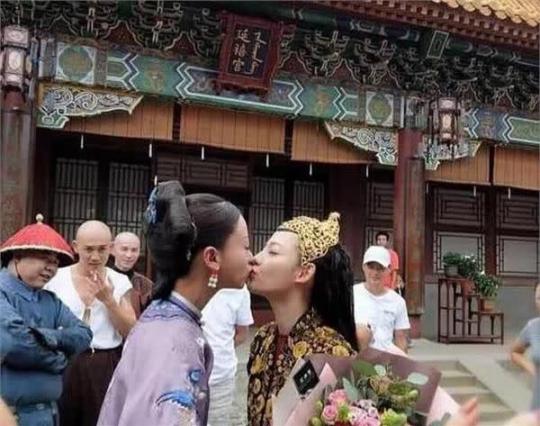
True story: My Chinese colleague, knowing I was watching this show, taught me slang for "lesbian." It's 拉拉 (lala). Very useful.
77 notes
·
View notes
Note
The depiction of me in the arms of another man, one that I despise for the animal-like qualities he despises; he is what you call a simp, a pervert and a debauchee, he cannot keep his excitement in his pants at the sight of Thomas Jefferson who was purposefully made appealing by JenniCatznies, another artist you possibly are acquainted with, and he does not deserve the attention of the public so as not to feed in the hunger he expresses in men “oiled up” and divested of their clothing, personality and dignity. He is dangerous, and I dread his relatives and those who live near him, forced to endure him roaming the streets in which he lives, flies buzzing after his trail. Withal, I have not been acquainted with his awful character in person and I have no desire of doing so, the notion of drawing us together therefore is absurd and questionable from a standpoint from an outsider ; the frivolity of our relationship as drawn is IDIOTIC as are you for even conjuring up this awful vision. The culture of drawing two men who have never even seen eye to eye being intimate is truly worrying in the circles of the website and it is a portal to the state of moral decay that has washed over our world and obscured the technological progress we made by dumbing our brains down, refocusing our attention from God and actual problems to fictional men licking each-others mouths in a perverted fashion that suggests inexperience of the artist ; the notion that this an acceptable pastime engagement is false and especially dangerous in the minds of likes of you. Free Yourself. Additionally, you tried to portray me as submissive, something you would know was not true if you tried to analyze my personality as a professional artist would. I do not sway with others ; I bend them to my will and women are made submissive at my sight which is how a proper woman is to be at the sight of a man however I have no interest in discussing this with you which is why I had kept this short in hopes that the message would be more clear to your minuscule brain. The realization of misdeeds you have commuted should encounter you once and then you will apologize; prayers are in order which I will pray For you not out of like but out of love and plea for the Lord not to send you to hell in spite of the distress you have blatantly caused ; you are miserable and I pity you-enjoy the day Amen.
.Surely a repressed romance novel antagonist
Let me just adjust my glasses real quick—You claim. To despise Simpbox Anon with the fury of a thousand suns. Yet here you are, writing paragraphs about him like some kind of Victorian widow swooning over her sworn enemy's scandal letters. You're not disgusted, you're invested. And at this point—You're more invested than actual shippers.
"He is dangerous, and I dread his relatives and those who live near him, forced to endure him roaming the streets..." My guy, you just painted him like some sort of oiled up Sweeney Todd, haunting the streets with his likes for historical figures. That isn't disdain—It's lore. You've crafted an entire mythology around this man. It's surely giving slow-burn enemies to lovers.
"The culture of drawing two men who have never even seen eye to eye being intimate is truly worrying..." HAH! Says the man who just wrote a dissertation about another man's animal qualities. You are not worried about moral decay—You're worried about how much your mind PANICKED when you saw that yaoi art.
"I bend [women] to my will and women are made submissive at my sight..." Dear gods. This is the most "I've never spoken to a woman" statement uttered. You don't bend others to your will—You daydream about being a dom while folding like a literal lawn chair the moment someone looks at you with mild authority.
"Prayers are in order which I will pray for you not out of like but out of love..." Classic "I don't like you but I'm absurdly obsessed with your soul" maneuver. This isn't piety, it's fanmail. If God did send you a vision, it wouldn't be of damnation—it'd be of Simpbox Anon leaning in, grabbing your chin and kissing you.
THE VERDICT—You're not fooling anyone. You LOATHE Simpbox Anon the way Romeo loathed Juliet before their first kiss. And the best part about why are you so mad? You know it.
Go ahead, clutch your prayers. But when you close your eyes tonight, we both know who'll be there.
By the way. "—by JenniCatznies, another artist you possibly are acquainted with." He's my husband.

@jennicatzies @gastroentred @biblicalvampireemmy
25 notes
·
View notes
Note
Patriach!!!!!! I love that fic it's so good and it really made me think about Bruce's relationship with Leslie
*spoilers*
So many Fics have Bruce not liking going to Leslie and I never really thought about it because that's how it's always been
But when Dick starts to point out that Bruce would rather bleed in an alleyway then face one of her lectures and I just sat there
Because kids really want to be accepted!!! And hearing only criticisms all the way well into adulthood will 100% destroy your mental health, and when you think about how much effort and sacrifices Bruce probably had to make to train under the best of the best, only for Leslie (who had an impact on him growing up but also was his dad coworker/friend) to dismiss all of it and tell him that violence is not the answer*.... It must of hurt
(*which is bull, we've been spilling blood for every freedom for as long as we've been around, open a history book Leslie)
I said this once (I think in dms with @wanderintofics) but I think it's very funny how Alfred has been cast into this overbearing mother role and Leslie has been cast as the distant and disappointed father role. Because where Alfred will relentlessly criticize Bruce, and withold care or affection if he feels Bruce doesn't deserve it, he will also always, always come back to Bruces side. It's a whole thing! Meanwhile Leslie will never whithold care, she's a doctor, she's a good doctor, but she will absolutely side with those criticizing Bruce whenever possible.
I think the fact that Leslie has been criticizing him this way since he's a kid influences it the most. Because hearing that your choices are a disappointment and your dead parents would be ashamed of you is. Not great!! Ever!! And since Alfred is literally an employee of the estate, Leslie is technically the only person in his life who gets nothing from him and isn't interested in pleasing or pacifying him. Alfred's criticism would hurt, of course, but there's also a level of "he's meant to be raising me into the perfect heir". Leslie has no such responsibilities, and that means her criticism is entirely personal.
There are two ways to write Leslie, and one is Watsonian (she represents an in universe belief) and the other is Doylest (she represents Batman critics in our universe). And my problem with her as a Doylest criticism is you cannot apply our universe rules to a universe with superheroes. The entire argument against capes falls apart with the first alien invasion. More then that, it simply isn't an interesting critique of the genre, because it inevitably falls into doomerisms and nihilism and I am supremely uninterested of that view of the world.
The Watsonian critique is slightly more interesting, because it at least has Leslie (reasonably!) acknowledge that she lives in a universe where superheros do exist, she is just personally against them. And my issue there is that Leslie is a militant pacifist, which boils down to "she believes you should also die for her beliefs". And. No.
She also believes that all violence is equal, when it clearly isn't and has never been, and insisting that it be treated as if it is is disingenuous and unhelpful. Its how we get people in prison for killing their abusers even in the most clear cut of cases. I disagree with her philosophy in the real world, and not even in a way that means I can agree in the fictional world, if that makes sense.
Leslie is a great character and I think she's very interesting even when I disagree with everything she's saying. I wish she had more screentime as n antagonist. Steph, for one, should not trust her ever again.
#asks#anti Leslie Thompkins#i think the thing with her is I see the shape of her argument so so clearly#and in some aspects I might even agree#but in most? nope
55 notes
·
View notes
Note
I love planing out my ideas in great detail but when it comes to actually writing the story it’s like pulling teeth. It goes from being fun and interesting to being nothing more than a dull chore. I’ve tried planning less to see if having some things unknown might help, but that didn’t work. I could spend forever writing and rewriting my ideas and making changes to them. But when I try to write an actual story it’s like I physically can’t. What should I do?
Details Planned But Unable to Write
If you have the details of your story planned out but still aren't able to write it, it's probable that one of the following things is happening. See if any of these strike a chord with you...
1 - Details and Plot Are Not the Same - Sometimes writers say they have all the details in their story planned out, but what they actually mean is they've fleshed out character and setting details, maybe even backstory and some general scene ideas, but they couldn't tell you what the story's conflict is, what the inciting incident is, what goal the protagonist is pursuing and why, what's at stake, or what the major plot points of the story are. No matter how detailed your story is in terms of characters, setting, backstory, and even general ideas about scenes, if you don't have a conflict to tie them all together, you don't really have a story. You just have details. A plot can't be moved forward if it doesn't exist, and if you don't have a conflict, goals and motivation, stakes, an antagonistic force and obstacles, etc., you don't have a plot. Solution: take some time learning about Goals and Conflict, Plot Driven vs Character Driven Stories, Basic Story Structure, and How to Move a Story Forward.
2 - You Lost Interest in the Story - If you have your story properly plotted in addition to having the details fleshed out, and you're still unable to write, it could be that you've simply lost interest in the story. This can happen when we spend a lot of time on a story, especially if we spend a lot of time fleshing things out. Solution: Guide: How to Rekindle Your Motivation to Write, Getting Unstuck: Motivation Beyond Mood Boards & Playlists, Getting Excited About Your Story Again
3 - Something in the Story Isn't Working - Imagine someone riding a horse and they come to a rickety old bridge, but the horse balks and refuses to cross. The horse may just be stubborn, but it's quite possible it's picking up sensory information its rider can't... creaks and groans the rider can't hear, a worrisome tilt or sway the rider can't perceive... If you sit down to write your well planned out story and can't, the same thing could be happening with your gut instinct. Like the horse that doesn't want to cross the bridge because it senses danger, something inside you is saying "this story doesn't work" and isn't excited to get involved. Solution: Read through your outline or plan and see if you can spot the problem. Maybe the character's goal doesn't make sense with the events of the story. Maybe the antagonistic force isn't doing enough to oppose the protagonist. Maybe the character arc is out-of-sync with the events of the story. If nothing else, talk it through with a trusted writer friend to see if they have any thoughts. Sometimes just hearing the questions they have about the story can be enough to highlight what isn't working.
4 - Life Stuff Is Getting in the Way - Even if your story is well fleshed out and thoroughly plotted, and everything works and you're excited about writing, there can be other things going on in your life that stand in your way. If you're putting too much pressure on yourself to write or reach certain writing goals, it makes writing feel stressful and our brains are wired to avoid stressful things. It could be that you're not feeling well physically or mentally. You could be distracted by other things you want to write or do. You could just be too busy with other things to really get into it. Or you could just be not in the mood to write. Solution: Try to pinpoint what's getting in the way and see if there's a work around. For example, if you think writing has become stressful and that's why you're avoiding it, figure out what you can do to make it fun again. Or, if you think you're just not in the mood to write, figure out some things you could do that would put you in the mood to write.
5 - Fear Is Getting in the Way - Details are easy, writing is hard. No matter how much planning and plotting you've done, actually putting those details into coherent words in a way that is compelling and well-paced--that's not so easy. And, the tough reality is that until you've had a lot of writing experience, your writing probably isn't as good as you want it to be. You want it to be good, and you know what would qualify as good, but you're just not able to produce that quality yet. And the only way to get your writing quality to that level is to let yourself write things that aren't as good as you want them to be. You have to write a lot of "just okay" stuff before you can write "really great" stuff. AND THAT'S SCARY!!! And--that's not even the only thing that can cause fear for writers. Maybe you have written a lot and your writing is where you want it to be, but maybe your fear is with the next step... sharing it with others. Maybe you're afraid others won't enjoy it as much as you want them to. Solution: figure out what's causing the fear, whether it's quality-related or next step related, then try to push through it. Remind yourself that writing not great stuff is part of the process. Remind yourself that sharing with others is part of the process (usually, unless you're writing for yourself.) Have a spin through the bottom half of my Motivation master list for other fears and solutions.
I hope that helps!
•••••••••••••••••••••••••••••••••
I’ve been writing seriously for over 30 years and love to share what I’ve learned. Have a writing question? My inbox is always open!
Learn more about WQA
See my ask policies
Visit my Master List of Top Posts
Go to ko-fi.com/wqa to buy me coffee or see my commissions
600 notes
·
View notes
Text
my writing tips, that i think people will find useful:
- write dialogue first and THEN make a scene around it.
i like to do this sometimes for multiple reasons. first, if you’re in a flow of good ideas, getting dialogue done will be a future GAME CHANGER. you don’t have to be stuck fussing over little word choices because you just do it when you have a good idea, and it works! fuss over it now, save time for descriptions later. second, the characters you’re writing usuuallly wont be able to read eachother’s minds. we people do everything by communication and talking! so, map out what you want your scene to look like through dialogue! i like to do mine as a screenplay or movie script, so that way i can ensure that the characters are speaking Like Real People (tm). and THEN I READ IT OUTLOUD >:)
- map out your chapters before you start to write. seriously, do it.
so, personally, my favorite part of fanfiction and writing is the planning stage. and i like doing it on paper, but we’ll get into that after this. first, you get the idea, the spark in your brain that could make an AMAZING story, comic, or au. that’s the general premise to work off of! write that down, if you need. next, do a VERY rough draft of what you want to happen—specifically, the 3 main points of your story: the beginning event, the middle event or climax, and the ending event, or your point A, B, and C. work off of and build up (or build down) from each of these core events of your story, planning the small events that lead up to The Big Guy (or B). these ideas or premises for each leading event can and probably will be VERY, VERY rough, but once you’ve got the rough idea of what will probably happen done, you can get to work on MORE PLANNING (sorry guys. learn to enjoy it)
- PLANNING PART TWO BABY WOOO (plan out your chapters. and if it doesnt work when you’re writing it, that’s okay!)
this is what you will do before you write your chapters, that works for me way better than just going in with no plan. personally, when i started to write the fic i’m currently writing, i mapped out all the rough details that i want to happen in the climax chapter of my story, because most people find the middle the hardest part. since i already had an rough idea of what would have happened before the climax with my previous planning stage, i already was able to connect how all of the buildup would lead into the climax of the story pretty easily. every action in your story will have a consequence, big or small, and that all will lead up to your protagonist bursting into tears or the main couple confessing their love or the final, epic battle between the protagonist and antagonist! if, when you’re writing, the rough idea you had just isn’t working out, you can either a: redo it completely if it’s a huge problem, or b (my favorite): work around it in the moment and improvise. i ended up making my fic’s climax way better just because of the extra scenes i added in while writing, but since i had my original plan to work off of, everything was a lot easier.
- make every scene with a motive to accomplish
most people know this one, but i thought it was good to add in. whether it’s to flesh out the world around your characters with fun and shenanigans or to give the audience a little more insight into a character who will be useful in the future, every scene and every chapter should have a purpose. when people act, they also like to give their characters motivations, and for a while, i wasn’t sure how that could connect. however, now i understand. let’s say a character is trying to motivate another one to be brave and face their fears, but character a is actually only interested in their own interests. character a’s motivation is to be self-serving—they’re not as concerned with helping character b, but instead, they want to help themself. this shows a lot about character a! when you have a purpose for every story beat and a motive for each character, it can help you flesh out the character much better.
- show don’t tell (and what i interpret that as)
okay, so for a while, i had NO idea what show don’t tell even meant. i LOVE writing about my character’s thoughts, their interests, their perspectives on what’s going on around them. character analysis is one of the best parts, for me! but there are ways to show what a character is thinking without the use of heavy description. for example, take this part from the fic i’m currently working on right now:

the character i’m writing for had not mentioned her mom the entire chapter, but when you go back and analyze her character throughout it, you can see major hints that part of why she who she is stems from her trauma with her mother. when she connects to an older adult female figure and feels understood, the issues she has are shown and not told, clear as day. by using dialogue and trusting your audience to connect the dots about your characters, you can make a better-written story! remember motivations; sometimes, characters don’t even know they have the motivations that they do, and the audience has to figure it out based on context clues. leave room for intrigue and mystery! think; if you were this character in this situation feeling the way they felt, what would you do? what would you say? why would you say it, and what would that reveal about you?
- write one story beat per day and WRITE ON PAPER
the word count, for me, doesn’t matter. if the quality of your writing is good, and the pacing gives audiences room to breathe, then that’s enough! quality over quantity, in my opinion. if you’re not up for writing, PLAN CHAPTERS! plan scenes, plan events! plan dialogue, make it fun! that is writing too. for me, when i have the planning done, i go with the One Story Beat Per Day Rule. if you get one small event done each time you write, you’ll be finishing The Big Event you wanted to accomplish in no time. and if you’re in the middle of a big story beat and you just need a break, i’d say to take one…. and later, come back with a notebook and a pen and think. paper has helped me write better because the flow of thought just keeps going when i’m focused, and i think it might work for a lot of people.
- remember, YOU CAN DO THIS! MAKE IT FUN!
writing and finishing stuff is really, really hard. but if you get one small thing done for the characters in your story, comic or au each day… you’ll eventually have an amazing, finished story. make it fun for yourself. listen to music, act out the scripts, use color theory, analyze your characters and don’t make it a chore! every small step contributes to getting to the top. make something you will love to write, and that you will love to read. make something for yourself, because in the end, if you enjoy it, the audiences will enjoy it.
#WOW. my longest post yet#whatever youre working on.#i hope people find this helpful#trust yourself… you can do it!#and if you can’t bring yourself to do anything else#try taking inspiration from your favorite movies#games#or shows#make fun references and jokes and try to make it easy on yourself#YOU GOT THIS#fanfiction#my fanfic writing#creative writing#writing#fic writing#ao3 writer#ao3#alternate universe#creative inspiration#art#character#writing tips#art tips#eyes open
86 notes
·
View notes
Text
꒰ 사랑𝐒𝐀𝐑𝐀𝐍𝐆: 𝐩𝐚𝐫𝐤 𝐬𝐮𝐧𝐠𝐡𝐨𝐨𝐧. 🫀
002: she fell in front of her sunbaenim 🤓

It wasn’t until a week later that you met the other actors and actresses in the film.
Your manager, Hongseok, had cleared pretty much your entire schedule so the rest of PRISM was out promoting while you were waiting awkwardly at the film studio, straightening out your white skirt and thinking of what to say to Sunghoon.
After all, you did kind of audition for Belift as a joke. You were really into Enhypen and Newjeans, so you sent in your singing and dancing tape thinking you weren’t going to get picked anyway. You did, though.
“Hi, sorry I’m late!” The all too familiar Australian accent pops out of nowhere, and your breathing is 10 times rapid knowing exactly who it belonged to. Pham Hanni from Newjeans.
“No worries!” You say, almost choking on the piece of bread you were taking a bite out of. “Greetings sunbaenim!”
You bow but Hanni shakes her head quickly, “ah.. no need. I read your profile, you’re a year older than me, so if anything, I should be the one saying the formalities.”
You don’t get to say anything else before the Park Sunghoon and Kim Gyuvin walk in.
Oh my God. You internally think. You almost have to hold back from fainting because how the hell are you in the presence of Hanni, Gyuvin, and Sunghoon at the same time?!
“This is our main cast,��� the director says, who your manager has told you to refer to as Director Jung. “We have a few more idols but they’ll be in and out between episodes.”
The four of you nod, you suddenly feeling so small when in the same room as your talented sunbaenims.
“Today is just introduction and get to know each other day since I know this was probably brought up upon you guys suddenly and it can seem overwhelming and uncomfortable.” Director Jung smiles, showing off his bright white teeth.
“The drama is a romance one, kind of like an American coming to age except Korean, you know? It’s called Parallel Love. The main character, Baek Yunhee is played by Yoon Y/N as you all know.” He then points towards your direction, making the other 3 idols all turn their attention to you. “Yunhee’s love interest is Min Suho, played by Park Sunghoon. The reason I chose the two of you was because you were exactly how I pictured Yunhee and Suho visually and I feel like you would astound me and the viewers with your acting.”
Your eyes subtly peek at Sunghoon, who looks absolutely glorious despite his messy hair and tired eyes. The engene inside of you screamed, but you masked it by biting the inside of your cheek.
“Now, the main female antagonist is Choi Sanghee, which will be played by Pham Hanni. The main male antagonist is Park Wooseok, played by Kim Gyuvin. Sanghee and Wooseok are somewhat love interests, but they’re also Yunhee and Suho’s biggest rivals.”
The rest of Director Jung’s words went from one of your ear and out another as he kept speaking, your vision instead focused on Park Sunghoon.
“Alright, that’s all I have to say! Any questions?”
There’s a few murmurs but no one says anything, so Director Jung hands the four of you individual scripts that were so thick you could slap a person with it.
“It’s time to take the poster photos so let’s get to work guys. Don’t disappoint me.”
Way to not pressure an idol who’s life is already hectic, you think.
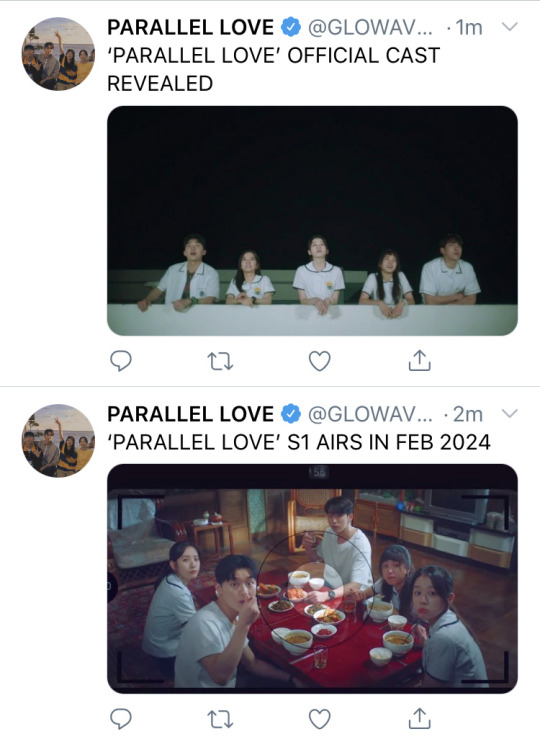
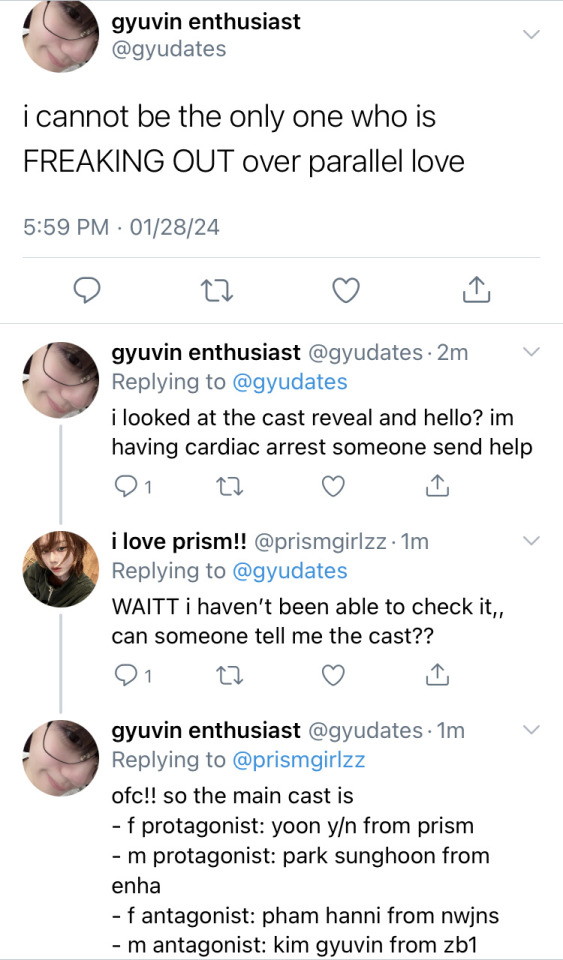
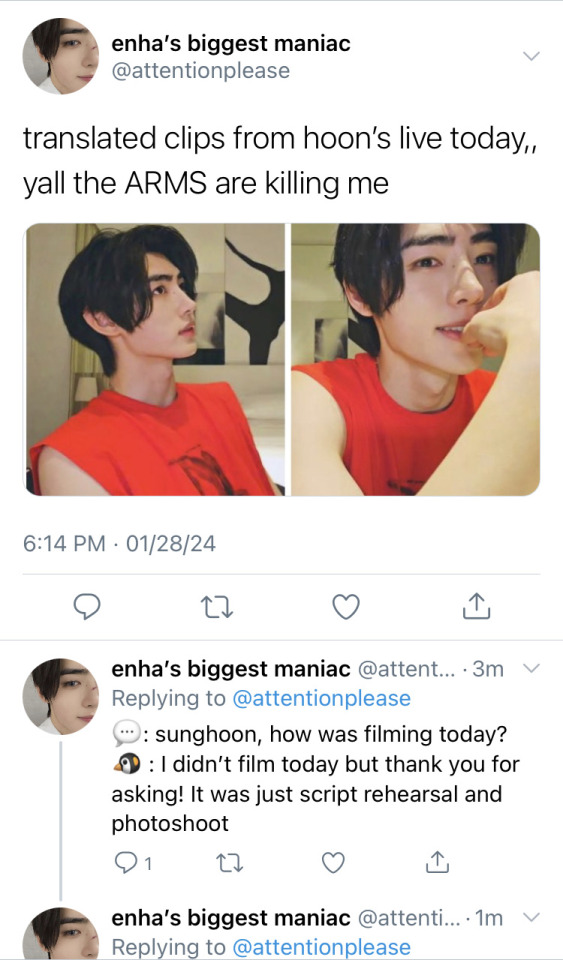
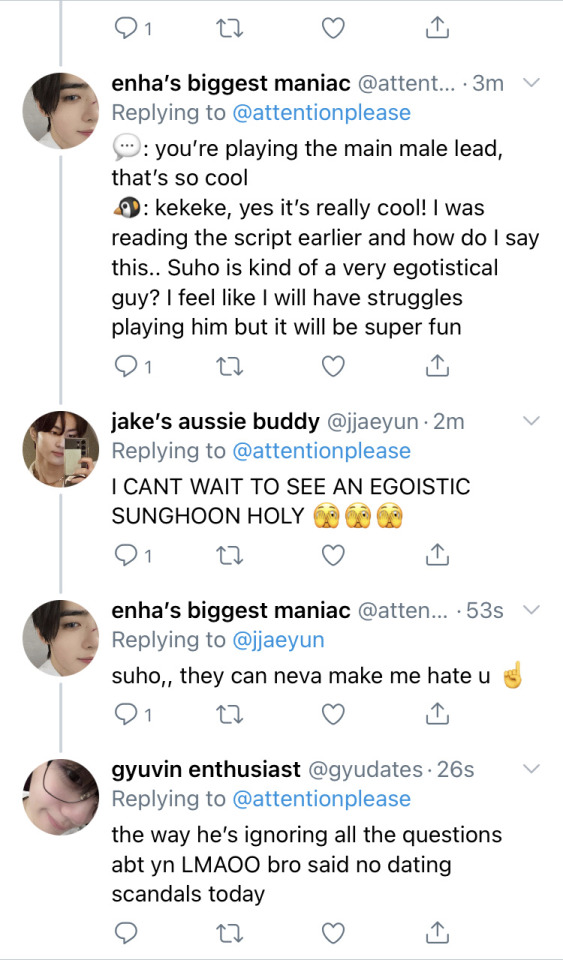
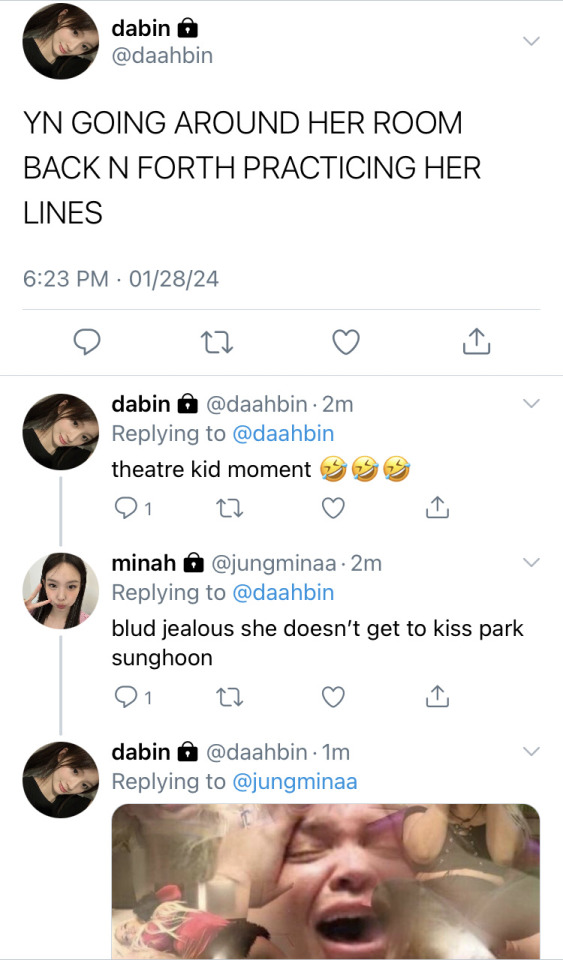
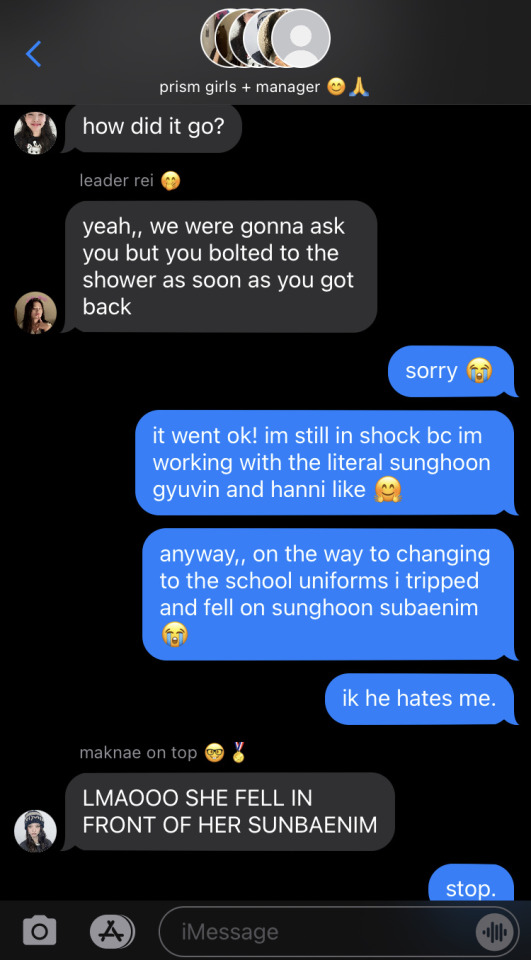
synopsis. you’re a newly debuted girl group under belift, and in order for your group to gain more popularity, your ceo offered you the lead role in a new romance kdrama. this all seems great, so what’s the problem? well, for starters, your co star is your senior, park sunghoon from enhypen, and he doesn’t seem too happy about being in a romance drama. especially when your fans have started to ship the two of you!
masterlist | previous | next
taglist ( is open ) @isawritesss @rodygr @wonifullove @mrchweeee @nyfwyeonjun @yizhoutv @cupkiki @rikizm @jiaant11 @woninluv @brachioanton @seunnimg @jongseongslvr @luvswonyoung @laylasmother @akuspic @haechansbbg @haerinsii @mnxnii
#yn so relatable 😊🙏#sarang 🫀 psh!#enhypen x reader#enhypen#enhypen imagines#enhypen fanfiction#enhypen fic#enhypen fluff#enhypen texts#enhypen x female reader#enhypen x y/n#enhypen x you#enhypen socmed au#enhypen social au#enhypen smau#enhypen soft hours#enhypen social media au#enhypen scenarios#sunghoon x y/n#sunghoon x you#sunghoon x reader#sunghoon fluff#sunghoon imagines#sunghoon angst#sunghoon smau#sunghoon
245 notes
·
View notes
Note
While we’re on the subject of characters who “make you truly question makes one villainous”, what do you think of the take that villains, or at least ‘true’ villains, shouldn’t be sympathetic at all. That villains should simply be motivated by petty selfishness and cruelty. On one hand, that doesn’t sound like it makes for compelling stories, but on the other… most real-life villains really are motivated by nothing but greed and selfishness. And gain power by making people sympathize with them.
"Villain" is a word that has a lot of nuance to it that people in turn tend to overlook in favor of reducing it to "the guy it's ok to hate." "Antagonist" has the same problem, perhaps even worse, but that's another conversation.
Definitions don't help because more often than not they end up being intensely reductive of the broad scope of meanings the word has - again, another word with a similar problem in this regard is "monster," which can mean a bunch of a very different things that are all nonetheless recognizable by bearing some element of "monstrosity" to them.
So, like, one valid definition of villain is "an evil and unsympathetic character the audience is meant to hate." And I imagine if you gave that definition to most people, they'd agree - until you get to sympathetic characters who are still unmistakably villains. Like, would anyone say the word "villain" shouldn't include people like Doctor Octopus in Spider-Man II, or Mr. Freeze in Batman the Animated Series? Is Shakespeare's Macbeth excluded from the realm of villains because the play hinges on us finding ways to sympathize with him despite the horrific evil of his actions? Is Milton's Satan, perhaps the most iconic take on The Devil Himself, excluded from the conversation because Milton gave him pathos?
Villainy can be about the nature of your actions, and it can be about your relationship with society, and it can be about your choice of fashion and hobbies. It can be all of these things or none of them. Villainy is a form of being othered, one that has so many tropes attached to it and folded under it that the aesthetics of it can be divorced from the morality assigned to them easily. Villainy is so vast and complex a concept that a story can analyze it from a dozen different angels and still not capture the full scope of it.
Or, as one movie on the subject put it so succinctly:
youtube
It's about presentation.
As a writer and a reader of fiction, I love looking at time-tested tropes from a lot of different angles, and prying them apart to see how they work, and then seeing how far they can bend and twist until they break and become something else. I think locking yourself into one simple definition of what a villain can be is very limiting, creatively speaking, and think it's far more interesting to explore the concept from different angles. There's room for simple, pure evil bastards, sure, but there's also room for multifaceted evils, or characters will all the trappings of a villain but actions that ultimately speak to a nobility of spirit others have overlooked. The complexity of the trope is beautiful, why not explore it?
99 notes
·
View notes
Text
I want to talk about productively hating a fictional character!
After a discussion on one of my recent bluesky posts, I thought it would be interesting to facilitate a conversation on why I believe you can find insight in disliking a fictional character while also not letting it ruin your day and making it everyone else’s problem.
A largely disliked part of online fandom tends to be disagreements on what characters you love and which ones you believe deserve to rot and burn. Most often I find that this is why friends (as well as myself) don’t interact in certain online fandoms/spaces.
I tend to avoid this aspect only because I never find that the person I’m in conversation with ever cares to look deeper than “I just don’t like them”, “they were mean to a character I like” or, commonly in fantasy/scifi “they killed people and that’s wrong”. Yeah, they did do something bad. But isn’t it interesting to think about why they do it?
Are you wrong for not liking a character? No, not really. You can meet the coolest most genuine person there’s ever been and I guarantee someone out there vehemently disagrees with you and prays on their downfall. The important question is why do they dislike them.
So my question: why can hating characters be insightful? My thesis: you’re just not going to like everyone and you should explore why and be okay with the answer.
Because it’s more interesting to know what makes people different, to understand why they react the way they do. I think it’s stupid to refuse to consume, as well as condemn others for the consumption of certain media because you happen to dislike a character contained within it.
Because isn’t that interesting? Doesn’t it get boring when everyone is likable and exactly the type of person you’d want to be best friends with? Earlier this month I was on a panel for screenwriters where we discussed building characters. An audience member asked what our one piece of (character) writing advice is. My answer was that you should write a character that you’d hate. Someone who, if you met them at a party, you’d loath. You can’t see yourself making an effort to reach out to and spend time with them.
Because not everyone can be perfect and good. It’s not a good story if that’s the case. You need an antagonist, and sometimes the main character is that person. Sometimes the villain draws you in because they’re well written and complex. And sometimes the character is neutral. They aren’t better or worse than anyone else, they just make different choices than you would.
Two of my favorite pieces of media in the last two years had main characters that I HATED. I read a book where I wanted to bare knuckle brawl both protagonists in a Denny’s parking lot. It was my favorite book of 2023. None of the three main characters in Challengers are necessarily good people and I left the theater thinking “God I hated all of them. This is one of the best screenplays I’ve seen in years.”
Because it forced me to think! I spent days wondering what about them was so interesting to me. At the end of the day it was always that I got a glimpse into thought processes that I don’t naturally gravitate towards. Because a well written character feels like a real person and not everyone is the same.
To me the spice of life is opposition. It’s standing nose to nose with something/one that I disagree with. It’s finding out someone thinks Sky Captain and the World of Tomorrow is a pile of steaming hot garbage when in reality they’re wrong and it’s an achievement in low budget genre film making. That doesn’t make me want to cuss them out and leave. It only makes me want to talk to them more. The real insight is found in the conversation, either with yourself or others. “Why?”
Kylo Ren is a bad guy. He’s killed people, he is given multiple opportunities for redemption and waits until the last possible moment to stick out his hand. Much of that is poor story organization on the part of DLF, but if you move past that and explore motive he’s suddenly so much more.
He became the villain because he had his weaknesses exploited at a vulnerable age and mental state. He’s related to three of the galaxy’s greatest heroes and one of its greatest evils and is always choking on the shadow of this legacy and all it entails. THAT is fascinating to me. Hate him, but don’t deny that there isn’t something there to explore.
This is all over the place, but in the end it’s my belief that disliking a character isn’t bad, it’s condemning others for diving into what’s presented to them and having a natural curiosity to explore humanity in all it’s vastness. It’s being adverse to dynamic characters and the complexities of life and another person’s authenticity.
#tarzelladraws#star wars#ben solo#kylo ren#fiction#characters#writing#Tarzella talks#character exploration#idk what else to tag this is really just nonsense#fandom
20 notes
·
View notes
Text
So, I recently finished playing Veilguard, and I’m mad enough at Solas that I’m gonna post about it. Warning if you haven’t finished the game – there will be spoilers. Prepare for an increasingly unhinged rant below the cut.
So first the good stuff (because the rest of this is going to be talking about how much I hate the guy): I think he’s incredibly well written and well-acted. There’s a difference between a character that is good because they’re well crafted, a character that is good in a moral sense and a character that is good because you like them. Solas is good because he’s well crafted (not so much the other two) but where he is good, he is very good indeed. A fictional character that can make you feel things (even if it is pure, unadulterated rage) is always a pleasure to encounter. Genuinely, kudos to the entire team behind bringing him to life.
I guess to start, I want to establish a baseline for where I was before I started playing Veilguard. I seem to be in the minority of people in the dragon age fandom in that I never loved Solas, but I didn’t really hate him either. Honestly, prior to Trespasser, I assumed that he was just supposed to be like Sheldon from the Big Bang Theory – very smart, but very, very bad at people. (Side rant – there are SO MANY ELVES in DA that read as being on the spectrum and I don’t know what it says that Bioware keeps making autistic coded characters that are people but not quite human, especially with how elves are treated by humans) And I know lots of guys like that in real life and I was basically like “Yeah, sure, that’s a type of person that can be a companion. Not my favorite type of guy to hang out with in my fantasy escapism game, but we can go with it.”
And then post Trespasser, I was really interested to see where they were going with him. It was clear that they were setting him up to be an antagonist, and all of the stuff about him that was kinda weird in terms of his non-answers to your questions suddenly made sense. I thought it was really cool that they were going for an antagonist that was so well known to the player, and with such an established relationship with the inquisitor. I feel like the fact that he and the inquisitor barely get to interact is a missed opportunity – they saved the world together, they should have gotten to have an actual conversation about the state of things at some point. But prior to playing Veilguard, I was super excited to see what they did with him in the game, even if I didn’t really like the guy.
But playing through Veilguard, every interaction I had with Solas was rubbing me the wrong way, and eventually I figured out that what was bothering me was that he was being extremely condescending. I was talking to my husband about it (he is also a DA fan, and he *hates* Solas) and he basically said to me, “Yeah, he’s condescending in Inquisition too, I don’t know what else you’d expect.” And that’s when it hit me – Solas talks to the PC the way the PC talks to Sera in Inquisition. Dalishious has a great series of posts about romancing Sera in Inquisition (I’d link, but they blocked me) but if I remember correctly, in them they point out that there’s almost never an option to be genuinely positive toward Sera. Generally, your options are either basically, “I think you’re stupid” or “I’m surprised that you’re not being stupid for once.” And I realized that a lot of my problem with Solas is that the vast majority of interactions with him feel like that’s his dialogue wheel with you. Solas disapproves turns into “Solas thinks you’re stupid,” and Solas approves turns into “Solas is pleased but also surprised that you’re not being stupid,” and I don’t appreciate him being so judgmental.
The other thing that was really bothering me is the way that Solas uses people. I initially wanted to say that he sees people as tools instead of people, but I think it’s worse. He stills sees people as people, but he only cares about how he can use them to further his goal. And we see this over and over again in every piece of Dragon Age media he’s in. And even if you take into account that he doesn’t see modern people as people due to the shortness of their lifespan (and by the end of inquisition that isn’t even necessarily true), we see him do it with people he *would* consider people. We know he considers ancient elves people – he fought a war of rebellion mostly on their behalf. But he kills Felassan for disobeying him (no longer being a useful tool). We know from his personal quest in Inquisition that he views spirits as people, but we see from his memories in Veilguard that he’s absolutely willing to sacrifice them in order to achieve his goals.
Even people he supposedly really cares about get treated this way. The Inquisitor gets used by him to stop Corypheus and recover his orb. Even if his approval is high, even if romanced, he still uses the Inquisitor like this. And even if romanced, at the end of Veilguard if Lavellan tries to talk him down, he blows her off. Frankly, even Mythal, the one person he’s willing to listen to, the one person who can talk him down from a bad idea, is still someone he’s willing to use. He clearly loves her, respects her more than anyone else, listens to her, but ultimately, he’s still willing to use what’s left of her as a battery to fuel his plans.
And he’s also clearly using Rook. Early in the game he straight up says, “Had I the power to control you, I would already have used it.” But because he can’t do it directly, he spends every interaction trying to shape Rook into a person who will do what Solas wants Rook to do. He’s the god of trickery after all – almost every story we have of Fen’Harel is about how he tricks others into doing what he wants. He’ll pester Rook into committing to doing “whatever it takes” to stop the other gods, because he’s willing to make any sacrifice, and Rook needs to be his tool to do that. Rook isn’t an ally in his fight against the gods, and Solas wastes no time trying to convince Rook that his plan is correct. He only says what is necessary to drive Rook to the point where Rook will be useful to Solas.
Right before you leave the prison of regret, Varric tells Rook, “Solas wants to be a hero, that’s who he is, deep down. But it’s easier for him to play the villain. Because that means he didn’t fail. All the damage he’s done, the people he’s hurt – it becomes a choice. Remind him who he really is. He might just listen.” And that really feels like the voice of the devs trying to talk to you the player. Like, Solas just tricked you and tried to imprison you for eternity, and you just found out that he killed your mentor/buddy and has been lying to you about it for the whole game. You have every right to be mad at him! But the devs have that same mentor figure, a guy who for many players is viewed as a friend from previous games, someone you would be inclined to listen to and trust, essentially tell you that it’s ok that he’s dead and that you need to forgive Solas and give him a chance to choose good.
And I really want to break that down. You’re being told that Solas tells himself that he’s the villain so that he can feel like he’s in control of all of the bad things that he caused that he didn’t mean to happen. “It becomes a choice.” But by saying that he’s just telling himself that, it implies that he didn’t have a choice, and that the bad things aren’t really his fault. He didn’t have a *choice* about raising the veil so it’s not his fault that the entirety of the ancient Elven civilization was destroyed, and all the suffering that has befallen the Elves since. He didn’t have a *choice* about killing Varric, so it’s not really his fault that Varric is dead. And now he doesn’t have a *choice* about tearing the veil down, so won’t really be his fault when he destroys another whole civilization. In this moment, through Varric, the devs are presenting the opinion that Solas can’t control the entirely foreseeable outcomes of his actions, so he’s not really a bad guy.
And I’m sorry devs, but death of the author and all that – you guys are completely backwards on this one. Solas isn’t a good guy who tells himself that he’s a villain to feel like he’s in control of the shitty outcomes of his choices. Solas is a villain who tells himself that there’s no other choice than to kill tens of thousands of people (or more) for the greater good. He is only ever merciful when the mercy costs him nothing. As soon as not killing someone gets in the way of his goals – well, he “has no other choice.”
And the “I had/have no other choice” thing also completely falls apart because Rook is out there taking care of business in a way that doesn’t, y’know, end civilization. If Rook and the rest of the Veilguard can kill a god mostly by hitting it a lot, then Solas could have done so too. And yeah, they were probably more powerful before thousands of years of imprisonment, but Solas probably would have been as well as would have his allies. The veil was clever, and Solas likes clever solutions, but this clever solution was definitely something he chose, and he can’t escape responsibility for the consequences by pretending he didn’t.
To be absolutely clear, Solas’s plan for the last decade has been to tear down the veil, a thing that he *knows* is going to result in the deaths of more than thousands of people, even after he makes plans to mitigate the damage. We know that when he raised the veil he destroyed a civilization, and we have no reason to believe that lowering it won’t destroy another civilization. A good person does not enact a plan that they have good reason to suspect will be civilization destroying. Enacting that plan and being a good person are mutually exclusive! Like, my dude, you cannot solve the fact that you destroyed a civilization by DESTROYING ANOTHER CIVILIZATION. It doesn’t solve the problem, and it makes things worse. You…you do get how that’s worse, right?
So, anyway, by the time I got out of the prison of regret I was already deeply annoyed with Solas, but the final battle just made things worse. Rook finds him and presses him about his plans for the veil and he says “I promise the veil won’t come down by my hand,” and it’s been two games and a decade of speculation and I am on to your shit. Solas’s MO is 100% saying things that are technically true to lead you to a false conclusion. “Won’t come down by my hand,” is different than just “won’t come down.” The latter means he won’t bring it down, the former just means that he’ll get someone else to do it – it won’t be *his* hand. He is a trickster god who is about to trick somebody and I am so done with his double talk. I heard that and literally responded out loud, “well now I’m definitely going to kill you, you fucking liar.”
And, of course, at the end of the game he shows up and tells you that by killing Elgar’nan *you’re* the one who brought down the veil. He’s kept his promise, it didn’t come down by his hand. You can’t be mad at him, he kept his word! And then you get a choice. If you’ve done the extra quest, you can talk him down. If you haven’t (or even if you have) you can trick him, or you can fight him. They all have roughly the same result, which is that the veil is now tied to Solas and Rook saves Thedas. And when I was looking up videos of the different endings, I noticed that they’re usually listed as talking to him as being the best option and fighting him being the worst. And I’m not sure I agree with that.
I mean, talking to him is definitely the best ending for *Solas*, especially if your inquisitor romanced him. Like, yeah, he’s trapped in the fade, but he likes the fade. He’s told that he doesn’t have to do all the horrible things he thinks he needs to do, he gets to feel like he has a choice, and if romanced, Lavellan goes with him so he gets a friend too. He gets to feel like the hero making a noble sacrifice for the good of the world.
But we’ve already established that I don’t think he’s a troubled hero. And I think that if you fight him or trick him, you gain additional insight into that. If you stab him, the last thing he yells before getting sucked into the fade is, “I am a god!” And if you trick him, he almost yells the same, but catches himself and says “I am a fool,” instead (“You are a mortal! And I am a fool,” makes no sense to contrast, but “I am a god,” sure does). And that’s not the sort of thing you shout if you don’t believe it. I cannot imagine myself shouting that in that sort of circumstance because I don’t think of myself as a god. But Solas clearly does. For all of the humility that he displays, Solas means Pride, and he is a prideful son of a bitch. That humility is an act. I think Solas even believes it himself, but that doesn’t mean it’s true. He’s just as egotistical as Elgar’nan, he just has different priorities.
I do think that it’s worth it to take a minute to compare Solas and Elgar’nan, because they are very similar in A LOT of ways. When you ask Solas about Elgar’nan, he says “He has always been what I most feared becoming. Callous and uncaring, his arrogance unchecked.” And like, sir. SIR. At the start of the game when Varric told you not to tear down the veil because people would die, your response was, “people are always dying, it is what they do.” How is that not callous? How is that not uncaring? You’re literally Pride! Your arrogance is practically a defining feature!
And their plans are also basically the same. They both want to restore things to the way they were before Solas made the veil. Elgar’nan wants his empire back with him ruling over it, and Solas essentially wants Elgarnan’s empire back but *without* Elgar’nan ruling over it. (side note: Corypheus’s plan in Inquisition also basically boils down to “I need to kill a bunch of people to restore my empire to its former glory.” Bioware needs to find a new villain motivation). And of them, I actually prefer Elgar’nan. Hear me out: the key difference is that Elgar’nan has a plan for how he’ll actually reshape the world once he’s done smashing the current one to pieces. Like, if all three of them desire a world where I’m dead, at least Elgar’nan has plans that are more detailed than 1) destroy everything, 2) ???, 3) profit! Glorious utopia. It’s deeply upsetting that Solas wants to destroy the world. It’s even more upsetting that he thinks destroying the world will somehow restore the last one he destroyed with no evidence of a plan on how to get there.
I think the devs were being a little too clever with the reversals in this game. You see Varric get stabbed in the chest, but then surprise! He’s not actually dead. But then surprise! Actually, he is. You start the game thinking Solas is going to be the main villain, but then surprise! He’s actually your ally against Elgar’nan and Ghilan’nain. And I think that like Varric, this gets flipped again, and that he is the main villain of the game. You don’t have to fight him, but when all the other enemies are dispatched he’s still a threat, and the decisions you make with him are the ones that feel like they might be impactful to a future game (if any other games get made, which is unfortunately looking unlikely right now).
But that feels weird because of the way the game pushes for you to redeem Solas. Dragon Age is certainly a series where you have the option to redeem people, but never the primary antagonist. You can’t redeem Corypheus, or Meredith, or the Archdemon. And while you could argue that Elgar’nan is the primary antagonist in this game, resolving Solas trying to tear down the veil after killing the primary antagonist doesn’t feel right from a structural perspective. You can’t just yadda yadda yadda resolving a world ending threat into the falling action, especially when it’s definitely the emotional climax of the game.
So the game ends with this situation where it’s pushing you to redeem what feels like the primary antagonist. The guy who has been using you as a tool, who sees you as inferior, who constantly excuses his own bad behavior, even when that behavior is destroying a civilization. And in writing all this I think I have a theory on why the game wants you to care for this asshole so much.
For a long time, the name of the game was Dragon Age: Dreadwolf, not Dragon Age: the Veilguard. And I think that’s because for a long time, Solas was the protagonist of this game. Not the PC, but the main character of the story. The game is about how he defeats his millennia old rival, and then (good ending) is redeemed by learning to not be like him or (medium ending) is tricked into saving the world, but realizes that it’s what’s right at the last minute or (bad ending) does not learn that lesson, but is forced to save the world anyway. It’s a story being told from the perspective of the tool he uses to do that, but it’s not the tool’s story.
And I’m glad that the devs decided to eventually shift the focus of the game to be more about the Veilguard, but the pro-Solas bias of the Dreadwolf version is still very present in the game. I just can’t see another reason why the game refuses to acknowledge that a guy with the same rough plan as Corypheus and Elgar’nan is also a villain, and instead insists that he’s just misguided! You can fix him! That’s not what’s going on here. He’s just using and abusing you. This relationship is toxic and you need to get out.
Anyway, all of this has been to say – Fuck Solas. He’s an excellent villain, and I enjoyed going up against him immensely, but I wish the game wasn’t so insistent on making excuses for him. I’m just glad that it still gives you the opportunity to punch him in the face and then stab him with his own knife. It’s what he deserves.
#long post#rant#I know it kinda sounds like I didn't enjoy the game#but I actually had a lot of fun playing it#I do have criticisms though#I was working on writing up the rest of them when I realized this needed to be its own post#I just wish he was real so I could kill him with my own two hands#is that too much to ask#Dragon age#dragon age spoilers#dragon age the veilguard#dragon age the veilguard spoilers#solas
16 notes
·
View notes
Note
What is it about magneto that puts you off?
Magneto as himself as a character is really interesting. There's something there for sure about grief and trauma effecting you so heavily, and all the things you do to make sure it never happens again really just end up hurting the very people you want to help, because you're so blinded by your own pain and suffering. A lot there about cycles of trauma, of the ways the people we love who hurt us often have had very difficult lives that made them the way they are, but at the same time you at some point have to do what is right for you and stop making excuses, etc.
The problem is that Magneto has attracted a strong fanbase of people who constantly say "Magneto is right", as if Magneto has ever had consistent politics beyond "Mutants come first", and rewrite history to make his relationship with his children more ""wholesome"" or palatable, when in reality he is not any better than Charles is when it comes to traumatising and mistreating his kids. And this would mostly be fine to ignore, if it didn't start seeping into Marvel canon and the way writers now depict him and his children.
Wanda would not call Magneto daddy! She has been very clear in the past that she considers her true father to be Django Maximoff, the man who raised her, and I do not care for Magneto quietly replacing that in Orlando Scarlet Witch. He is a bad person to Pietro especially, which still remains in canon still at least, but it's mostly vague, without the context of why. Magneto literally killed Pietro in a fit of rage. Their relationship is, and always will be, an antagonistic one, and I do not understand why fans want to rewrite this dynamic to a much blander, easily digestible wholesome dynamic. His relationship with Lorna is slightly more stable in my experience (mind you, this is definitely my weakest point of Magneto and kid's dynamic, so I could be wrong) with him being more willing to acknowledge his wrongdoings, but he still often can be controlling and very quick to anger with her the way he is with the twins.
Magneto is not right, and he is more interesting to me when he is wrong. I honestly do not see the value in recontextualising his original LeeKirby actions as "The humans NEEDED a monster to fight", when like, no, he straight up was trying to murder some teenagers! He was a villain and while I don't think he should return to that kind of villainy, it is extremely important to the makeup of who Magneto is, and especially his redemption arc and his relationship with the twins, and the ways they struggled to accept him in their lives when he was on his redemption arc.
I like Magneto. I do not care for his fanbase, and I don't care for the increasing prevalence of those fans maturing into comics and rewriting history to make him less divisive and complex to make him a straight up hero.
22 notes
·
View notes
Text
Least Favorite Novel of the Cosmere
GodsShoeShine23 : I'd say Alloy of Law. I just honestly didn't really care about Wax and Wayne until they were more fleshed out in Shadows of Self and Bands of Mourning. For Once, Brandon kind of just threw us right into the action from the get-go, but did so in a way where I had no real motivation to root for the main characters of the book other than them being the main characters of the book.
Brandon Sanderson: I wonder sometimes if I should do a full-on rewrite of Alloy. It would also be my vote for weakest Cosmere novel. (I think it's probably my weakest novel overall.) The big problem came from it being a short story, that became a novella, that became a fun little novel not meant to do any heavy lifting. But the series went from there to get some of my strongest books, as I fell in love with world and characters, and became a full-blown era rather than a pit stop between tow large eras.
So you have something weaker, meant as a kind of "Secret History" novella, to a load-bearing pillar of the Mistborn series. And it's the place where already (coming off the main trilogy) where people were the most likely to abandon Mistborn as a larger mega-series. So I have my weakest cosmere book in a pivotal place in the sequence.
The solution could be to just take it and give it a ground-up rewrite with more depth of characterization and narrative rigor. But then, we have the problem of their being two significantly different versions of a book, which causes other logistical problems.
GodsShoeShine23: I find it hilarious that the one time I’m not praising your novels, you end up stumbling upon my comment, lol.
In all seriousness, I thought Alloy of Law was still a pretty fun read. I like the expansion on the magic system that was built up in Era 1, and Wayne honestly ends up being one of my all time favorite characters in the cosmere. I always thought to myself that Alloy of Law read like a novella, so it’s actually interesting to see that it was originally based on a short story idea essentially.
I will say this though; I expected to see most people vote Elantris as the weakest book as seen in the comments, but I honestly found it to be much more entertaining than people lead me to believe. Hrathen may be my favorite antagonist you’ve written, and I’m wondering if more will be revealed about his charcater in the sequels.
#mistborn#the bands of mourning#elantris#cosmere#cfsbf#brandon sanderson#branderson#wob#kind of#long post
69 notes
·
View notes
Note
So if Adrien were to get an antagonist like Marinette and Chloé (or Alya and Lila in your case), who would you pick?
For me, I would personally pick Félix since he and Adrien had some personal connection as family and it did felt like there was some potential for a possible rivalry between the two in his debut episode (before the writers screwed Félix’s character by a lot).
(Post that spawned this ask)
It really depends on what format I'm being forced into. Félix is like Lila: great in serialized content, terrible choice for episodic content.
If we're allowed to go the serialized route and have plots run for multiple episodes, then Félix could be a great rival. You'd need to do something to rework his character, though, because right now his motivations are really confusing. If we go with the senti stuff, then there's not much to base the rivalry on or even many plots you could do. Let's quickly pitch an alternate Félix to show you what I mean.
Félix and Adrien are the same age and we know that Emilie was the older twin, so maybe the boy's maternal grandparents are still alive and have yet to decide who to pass their fortune and titles on to: the traditional bloodline heir (Adrien) or the kid of the daughter who stuck around and followed tradition (Félix). This could be an interesting path if we give Félix all the same interests as Adrien. If they're constantly competing to be better and Félix is constantly sabotaging Adrien at big events.
For the sabotage to be clever, it would need to be set up in more than 20 minutes, otherwise Félix would just feel petty and opportunistic, which is the problem with Emotion. Félix just shows up and seems to go crazy because truly setting up his invasion of the Diamond Dance would have required him to have screen time across several episodes. That screen time could have been minor, but it was still needed. Maybe Ladybug and Chat Noir keep looking for Félix as a subplot, leading us to have multiple episodes end with a quick look at where Félix is and what he's doing.
While we're on the topic of canon changes, compare the family rivalry setup to canon and you hopefully see what I mean by lack of a motivation or even ways to show the rivalry off. What opportunities does canon Félix have to show how much better he is? He and Adrien seemingly have nothing in common apart from their looks, making it somewhat difficult to compare them. You need those common interests or big showoff moments for a rivalry to work. You also need to feel like Adrien is better than Félix and canon didn't do that. Félix is smarter and more of a go-getter than passive, gullible, naïve Adrien. Every encounter between the boys sees Félix win.
There's also not much to support a read that Adrien gets more love or attention. Amelie is doting. Gabriel and Nathalie are cold and distant. So why does canon Felix delight in tormenting Adrien? What is Felix's goal with things like trying to assault Ladybug or telling Adrien's friends that Adrien hates them? Even the season four final is really weird. Felix already snuck into Adrien's room. Why did he need to officially switch places with Adrien? Just dress up as Adrien, commit your theft, and go home, dude. That's way less complicated than agreeing to leave the country as your cousin. (So much of the season four final is written around forcing Ladybug to lose that it's actually kinda funny. So many things make no sense.)
When figuring out how to rework Félix, you also want to keep in mind what motivations are driving Marinette's antagonists. You don't want Félix to feel like a Lila or Chloe clone. You want him to bring diversity to the table. His motivations should be unique to him and his relationship to Adrien.
If we have to stick to the episodic format where character motivations and plots can be explained and resolved within 20 minutes, then I would not use Felix. Instead, I'd have some fun with how oblivious Adrien is and give him a bunch of "rivals" for Chloe's attention. To match our theme of diversity, while Marinette and her antagonists never get along, Adrien could have a string of rivals with each one ending the episode either no longer interested in Chloe because they realize she's a brat or still interested, but no longer hating Adrien because they realize he's a total non-threat. Less interesting than the Félix stuff, but potentially a funny running gag no matter which way you play it.
42 notes
·
View notes